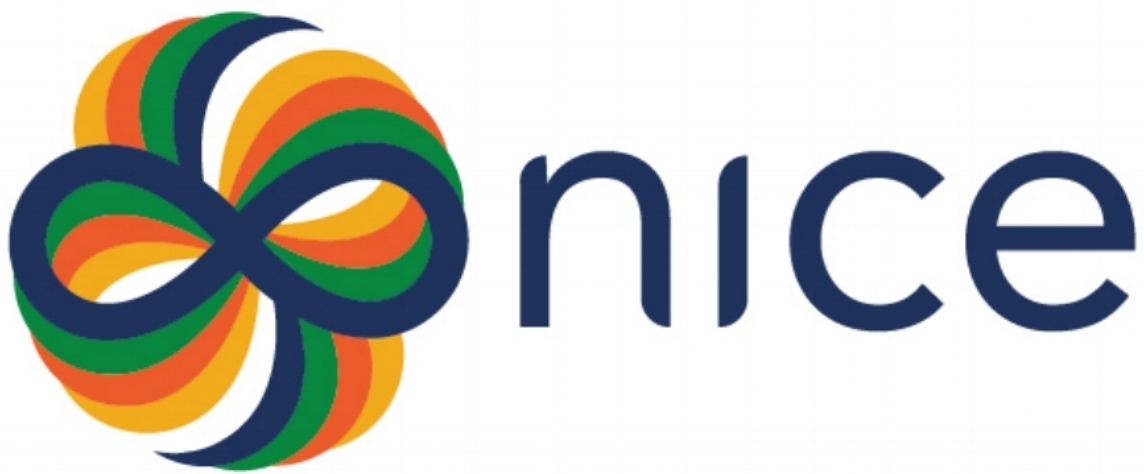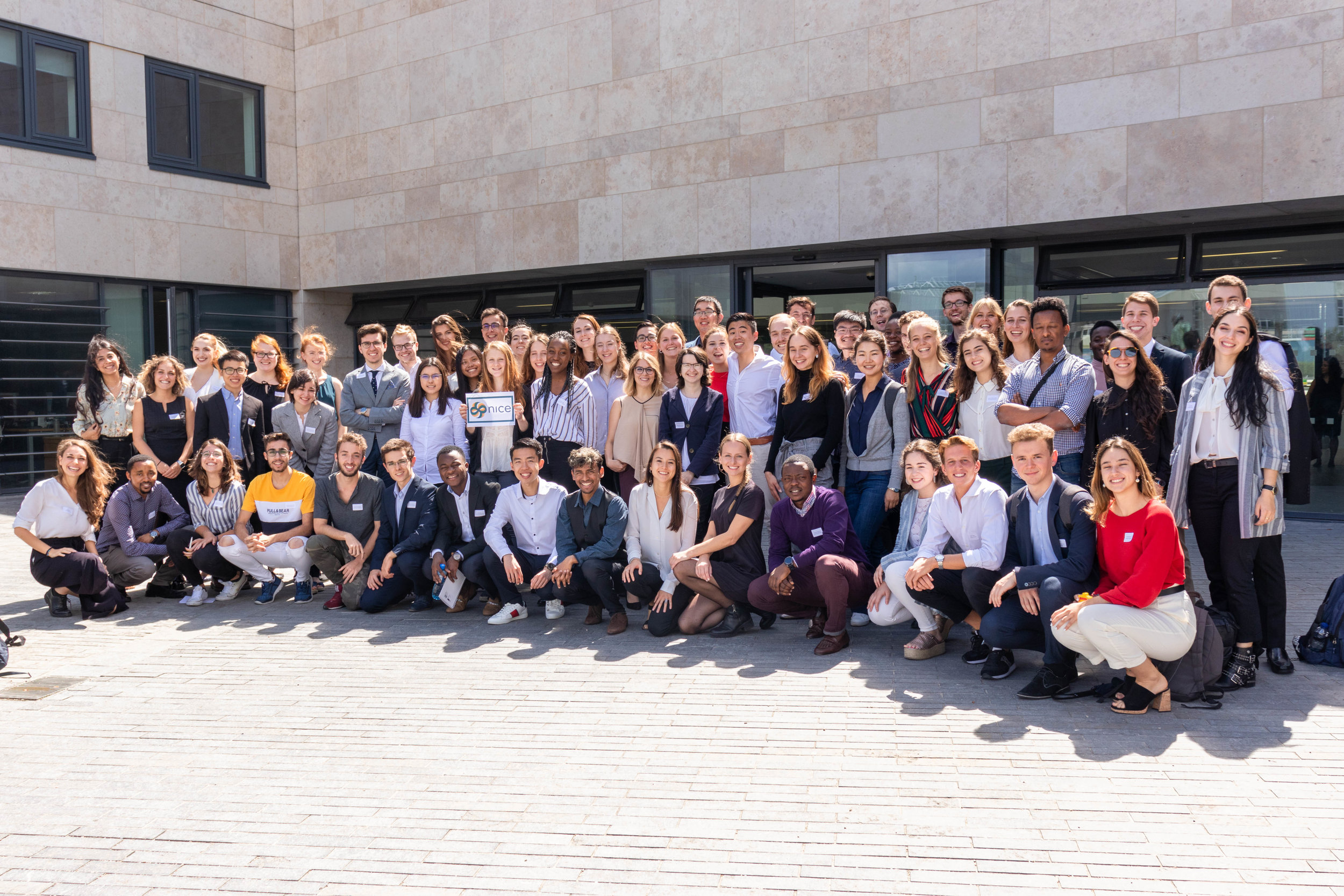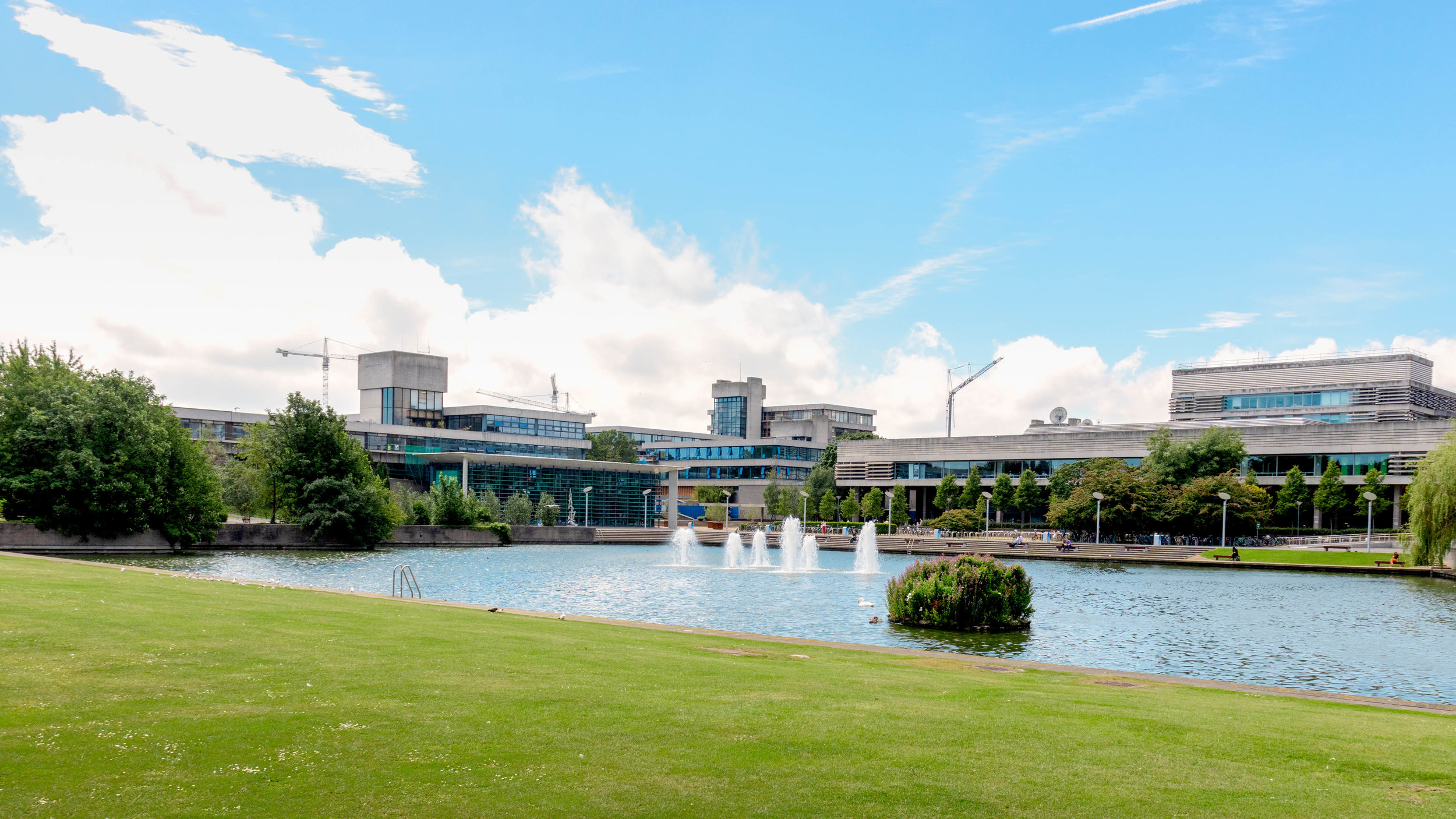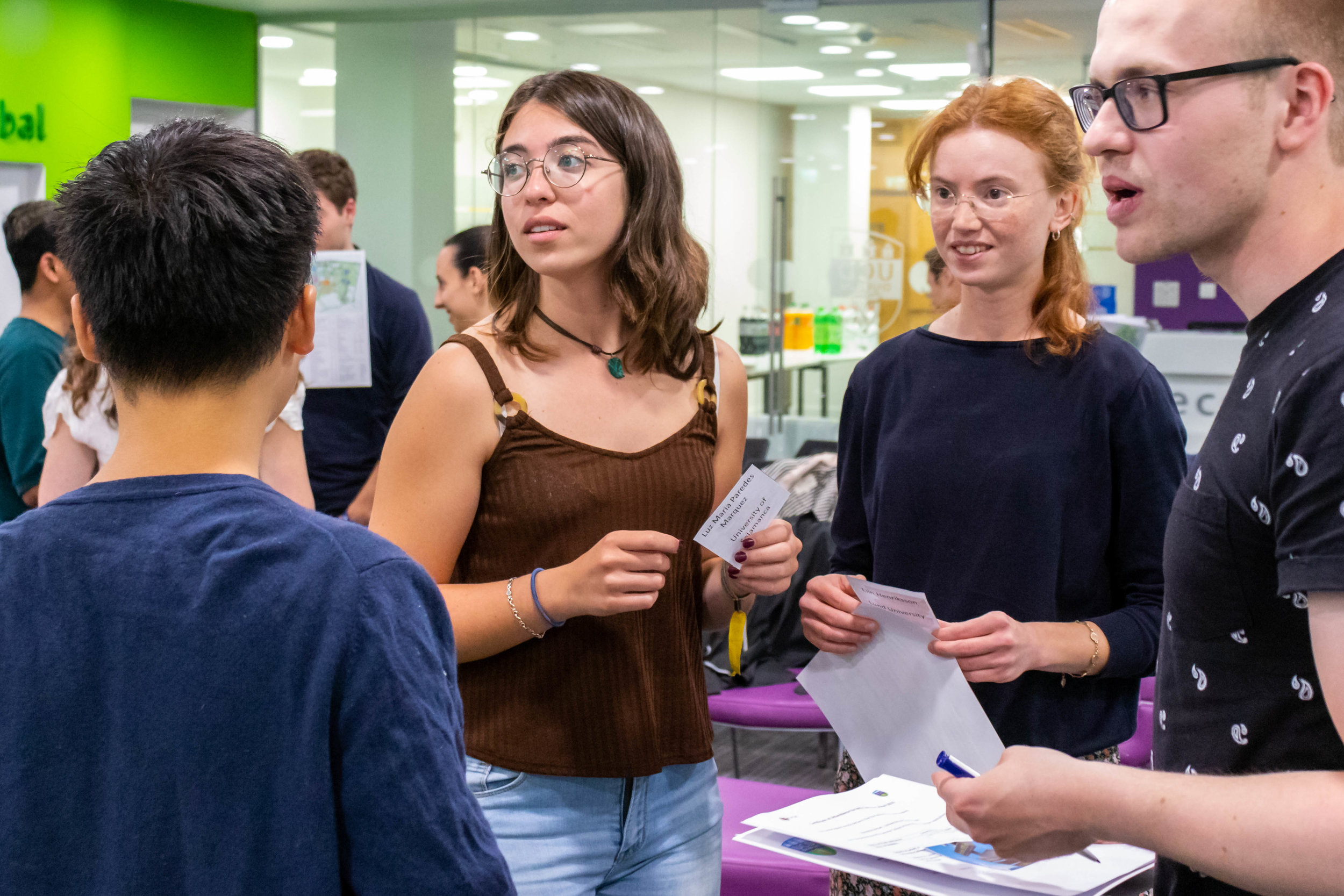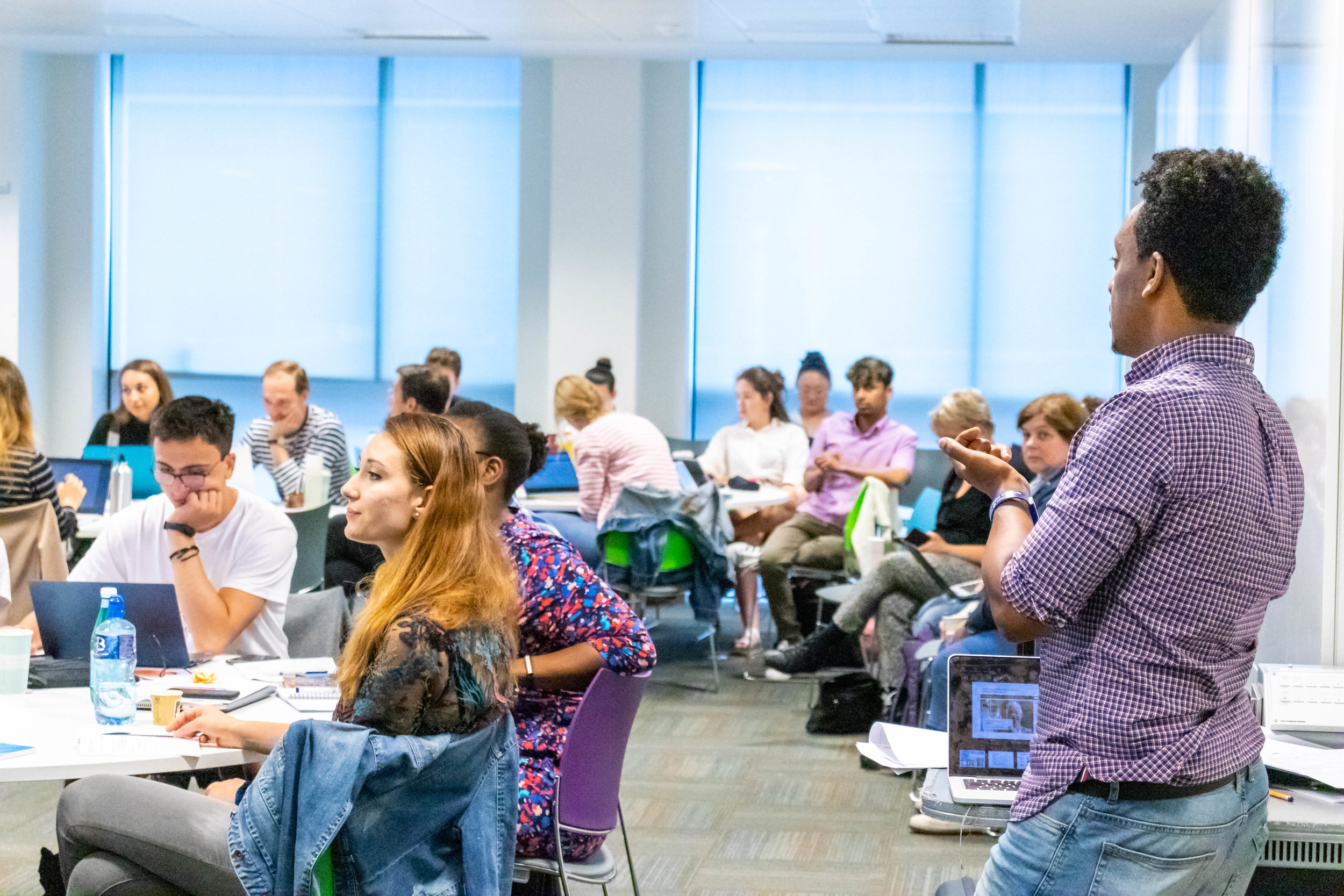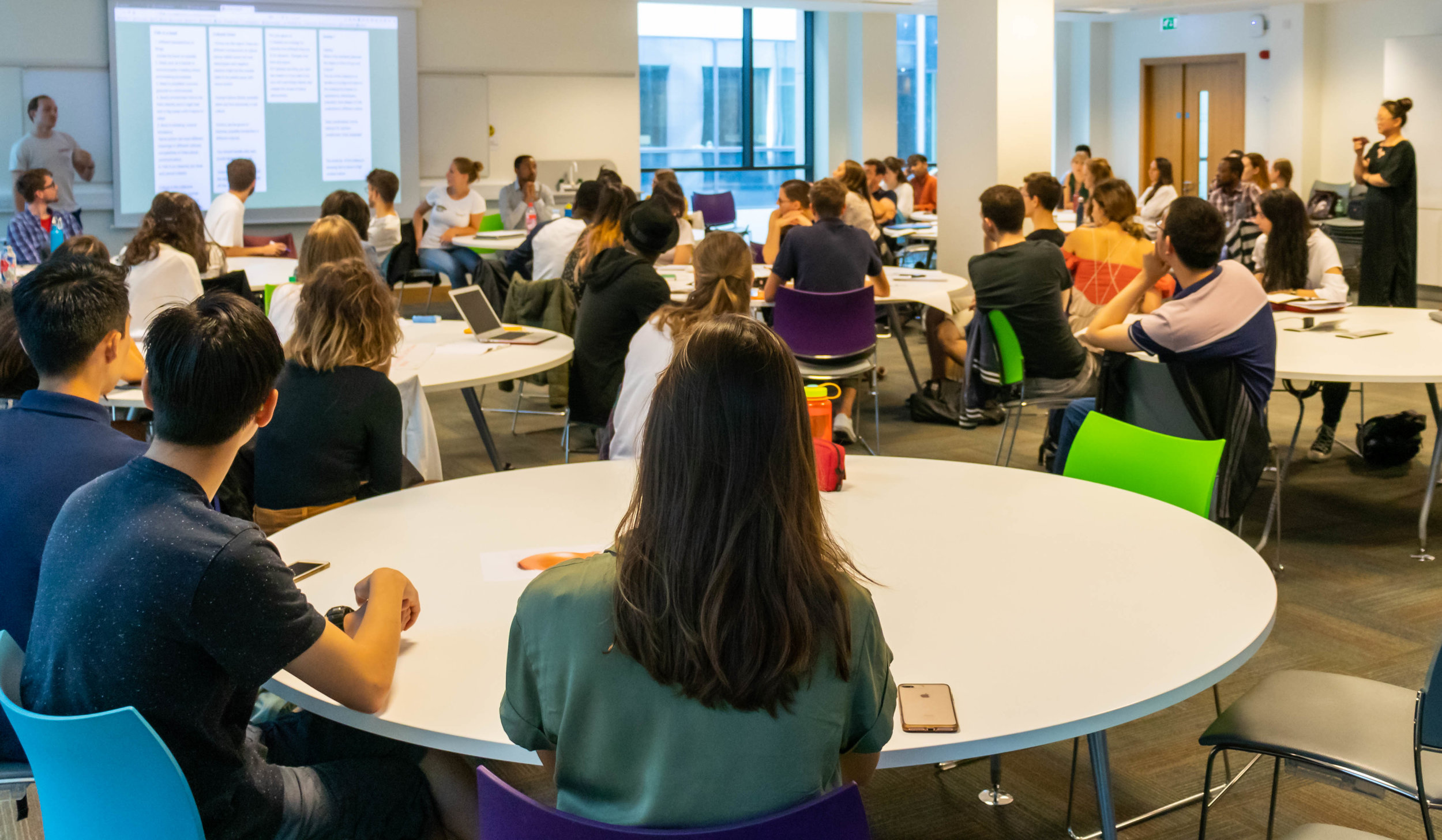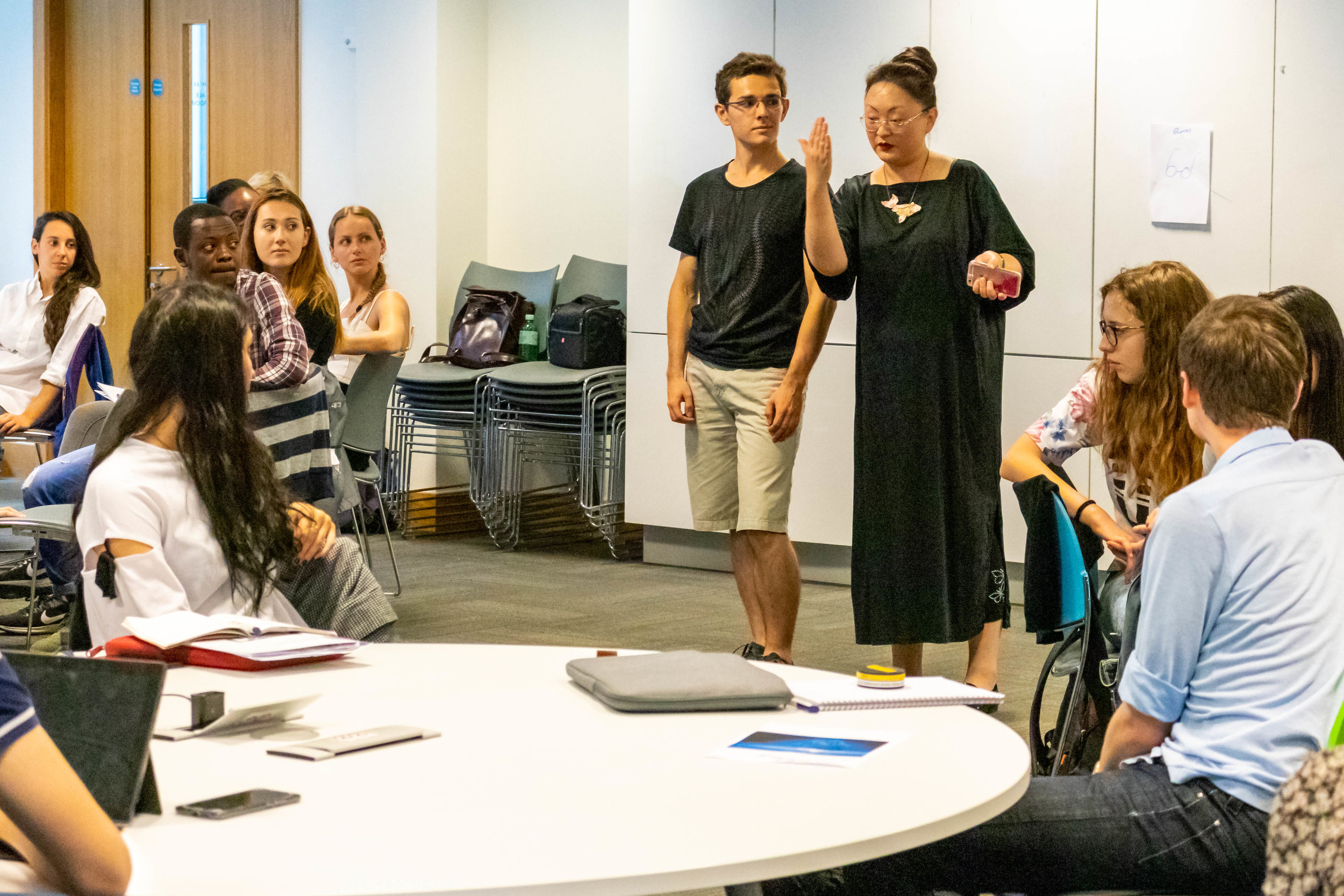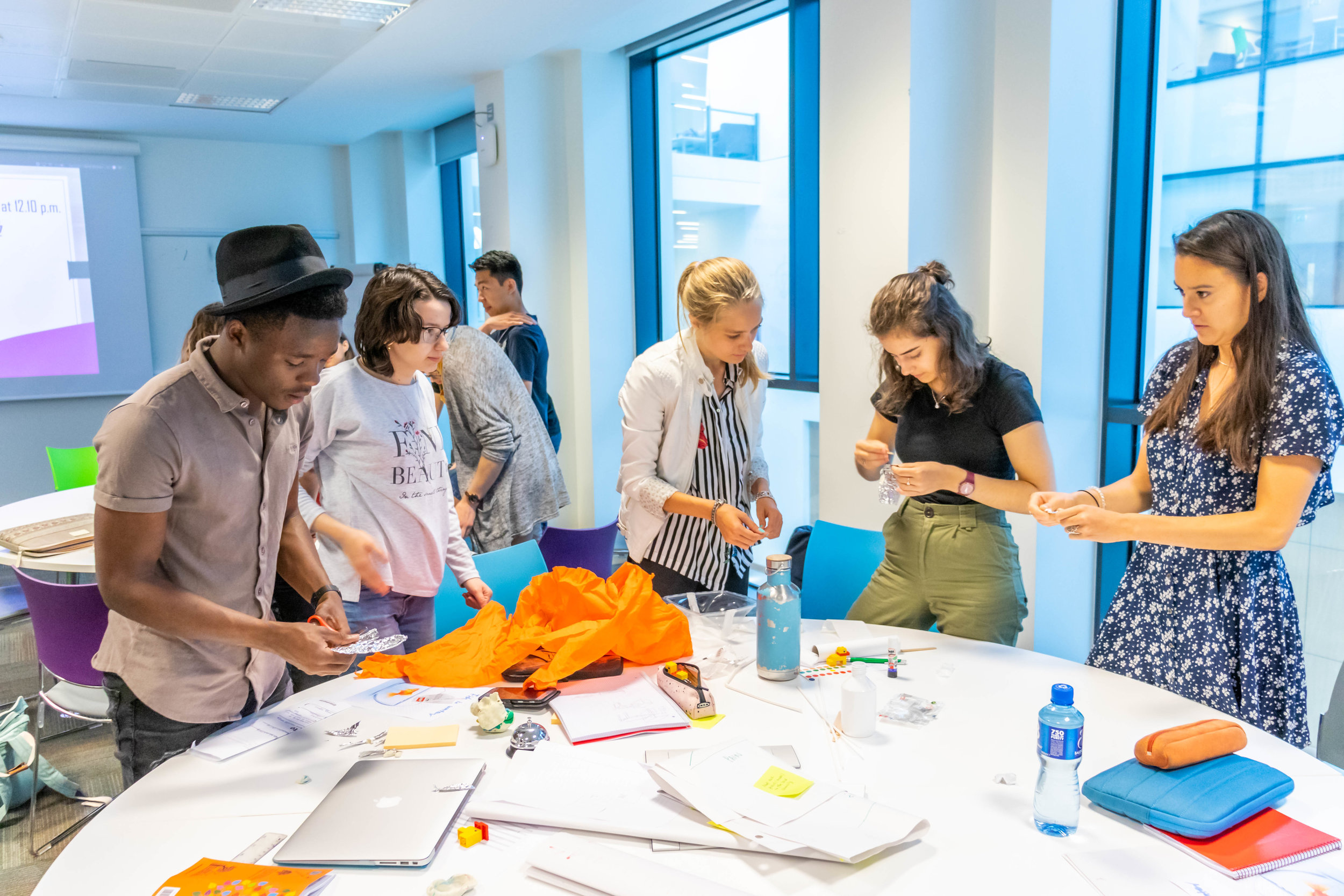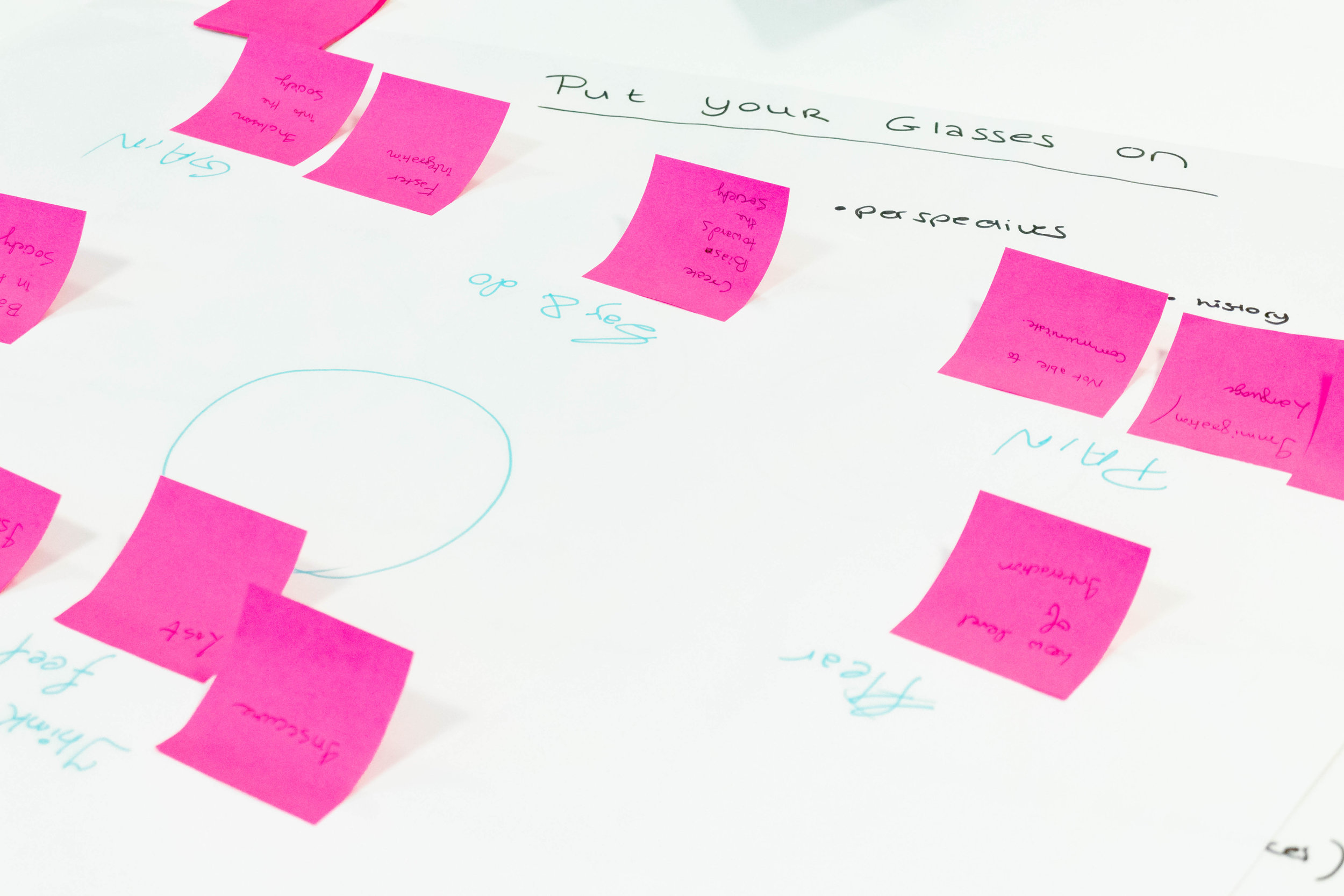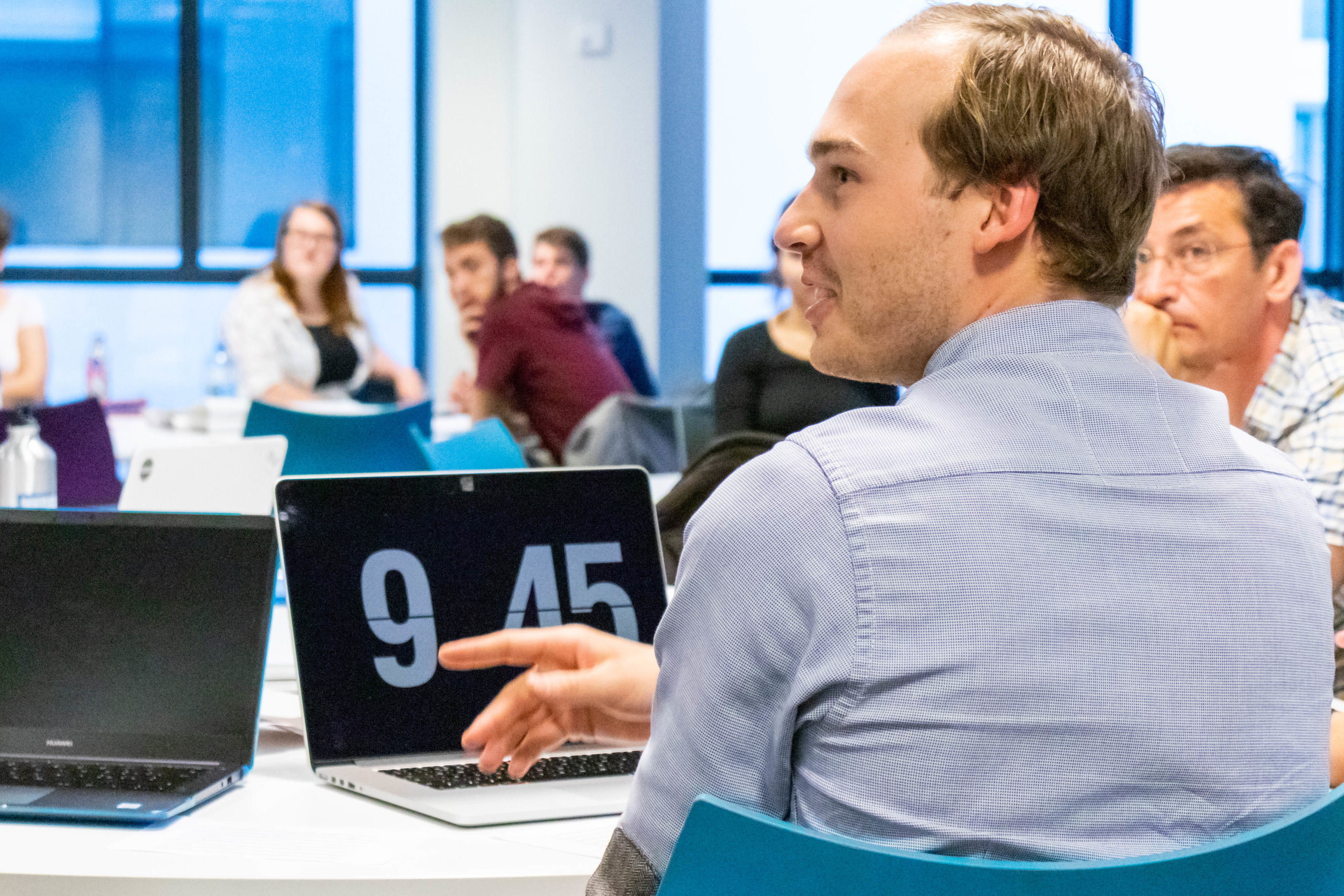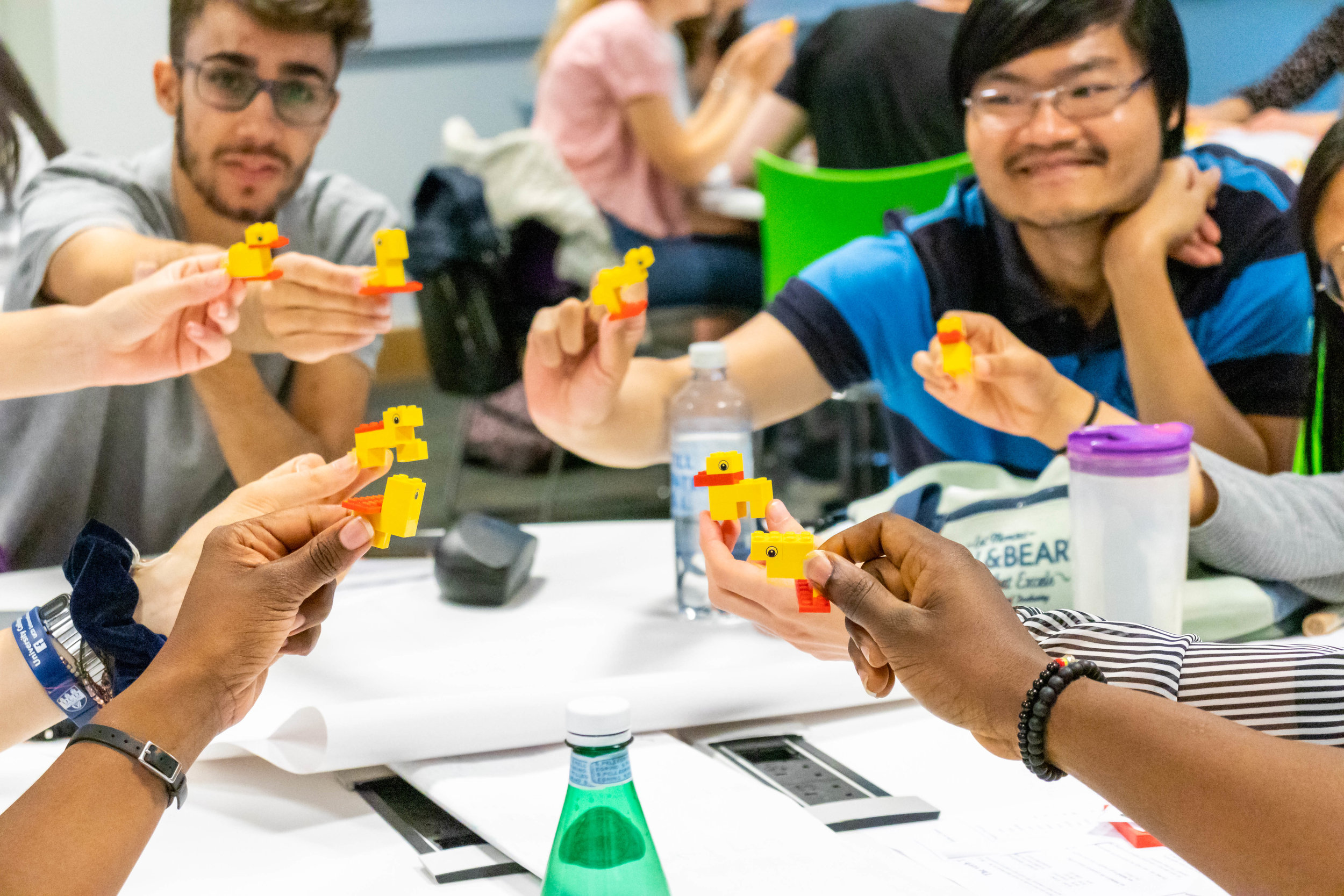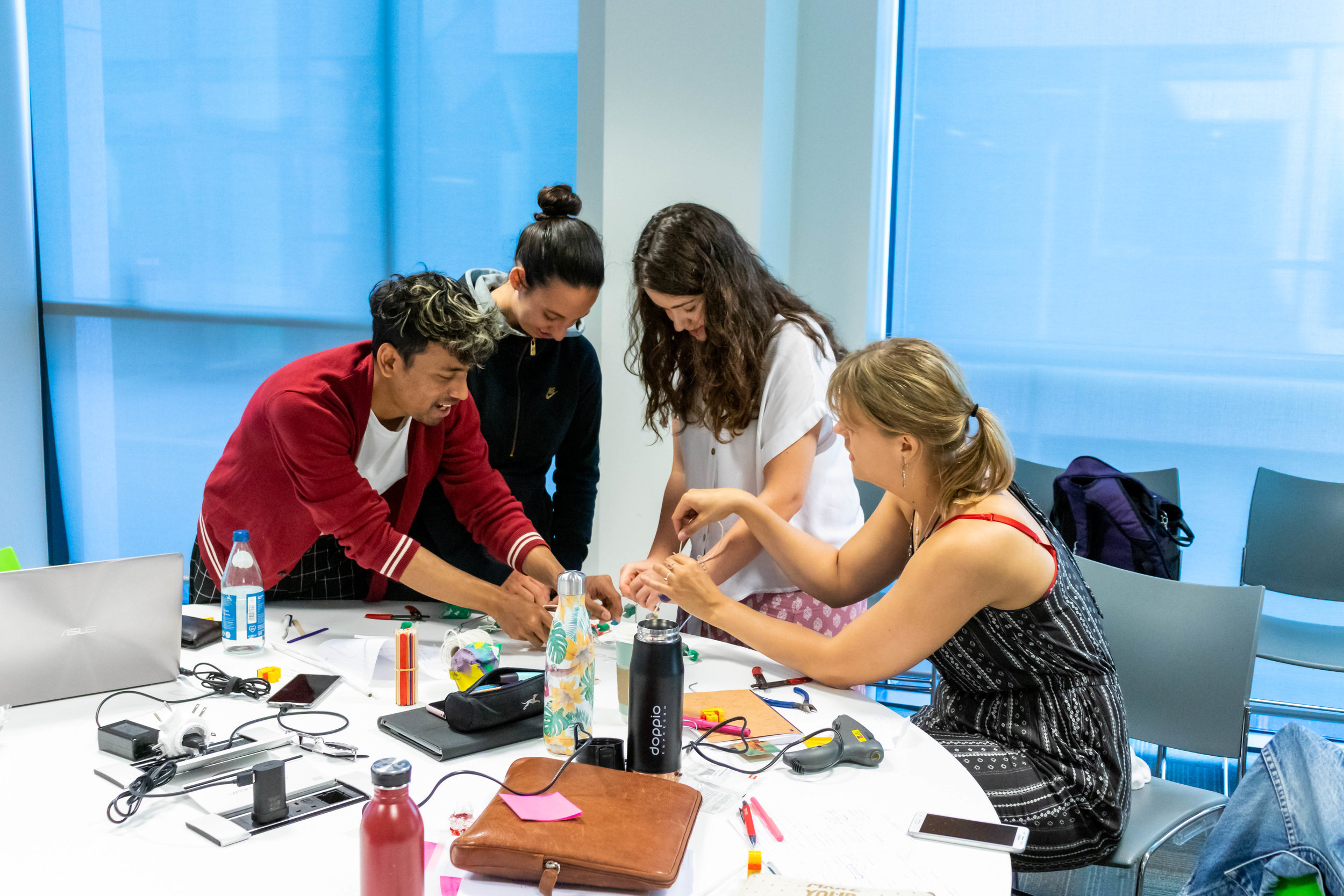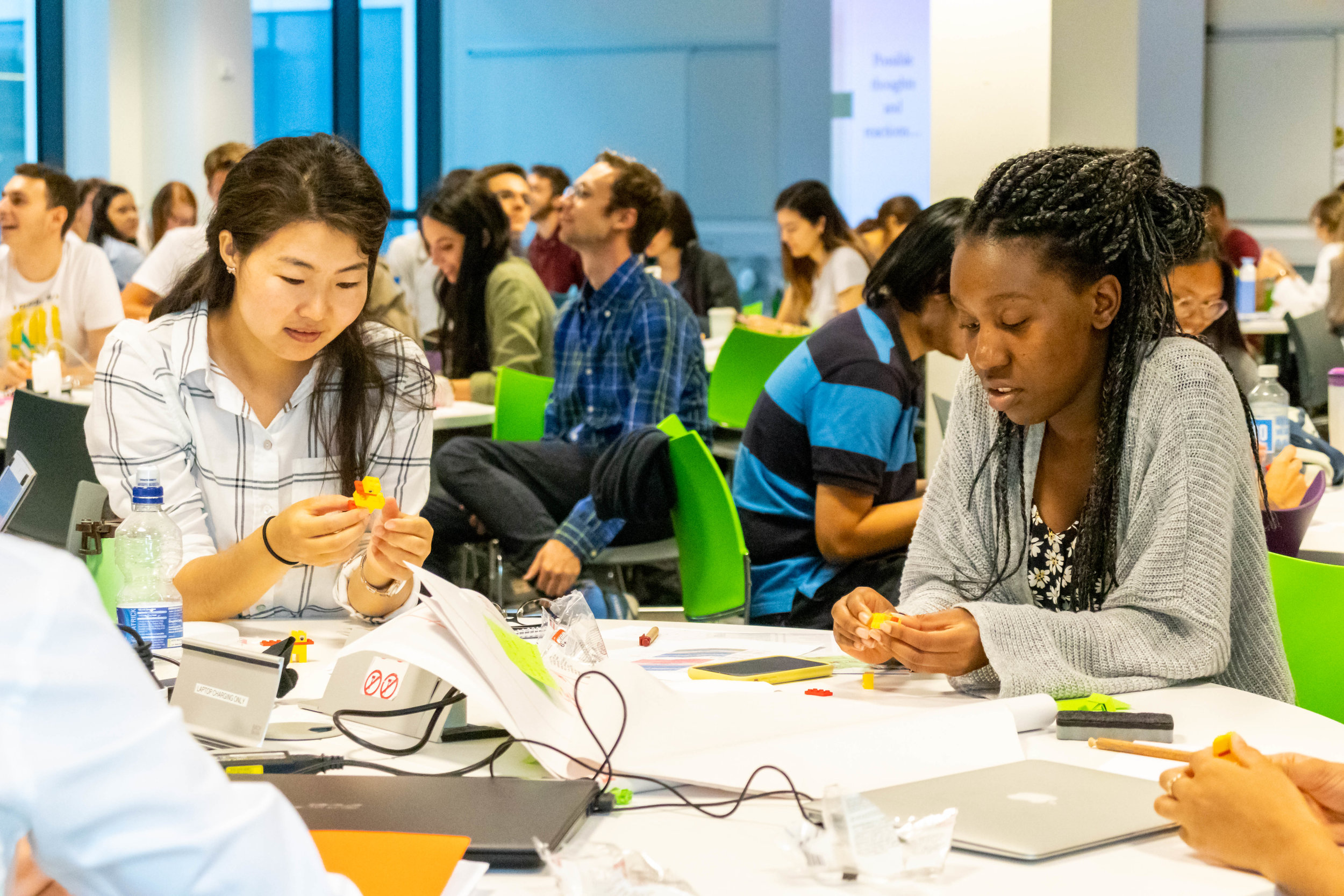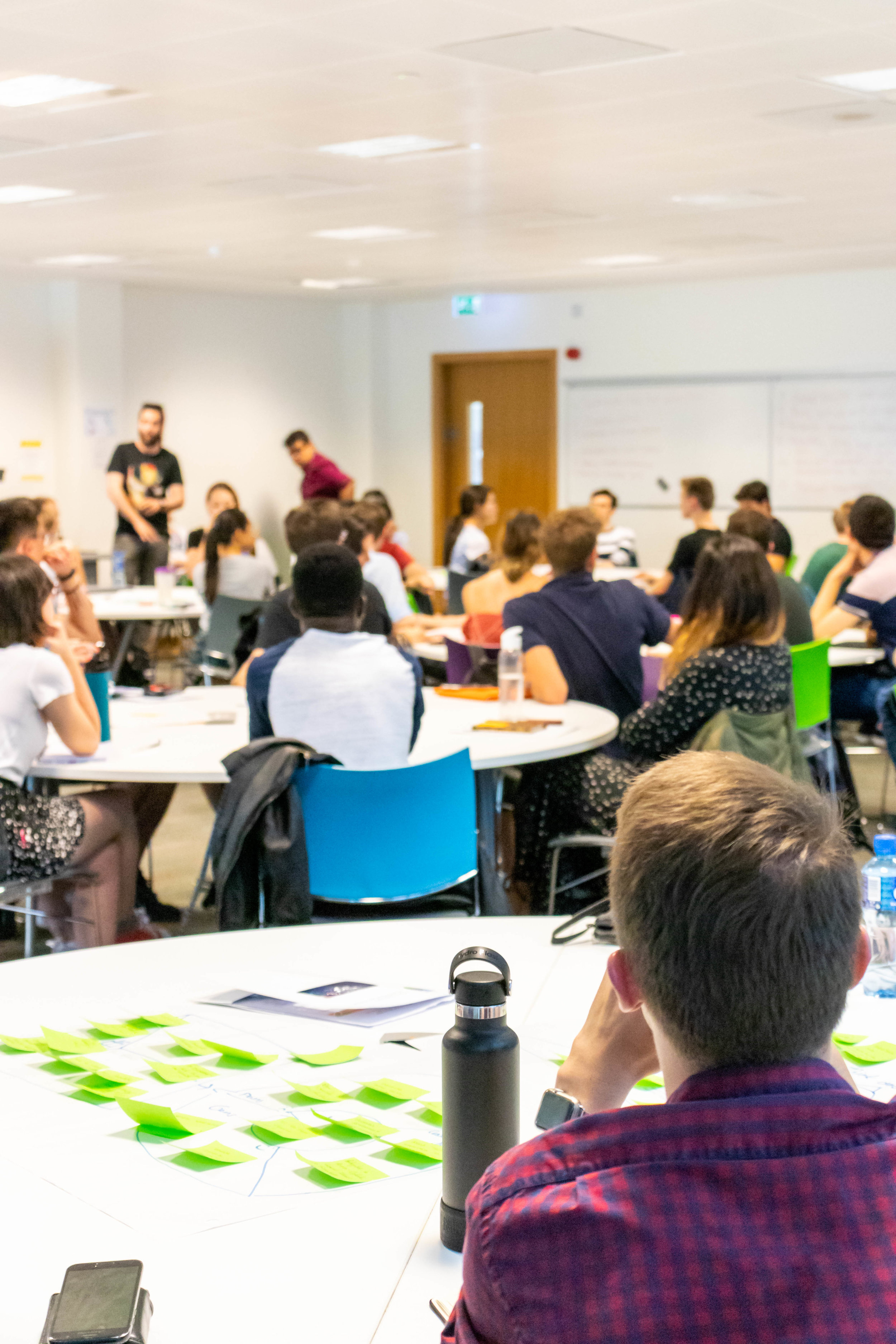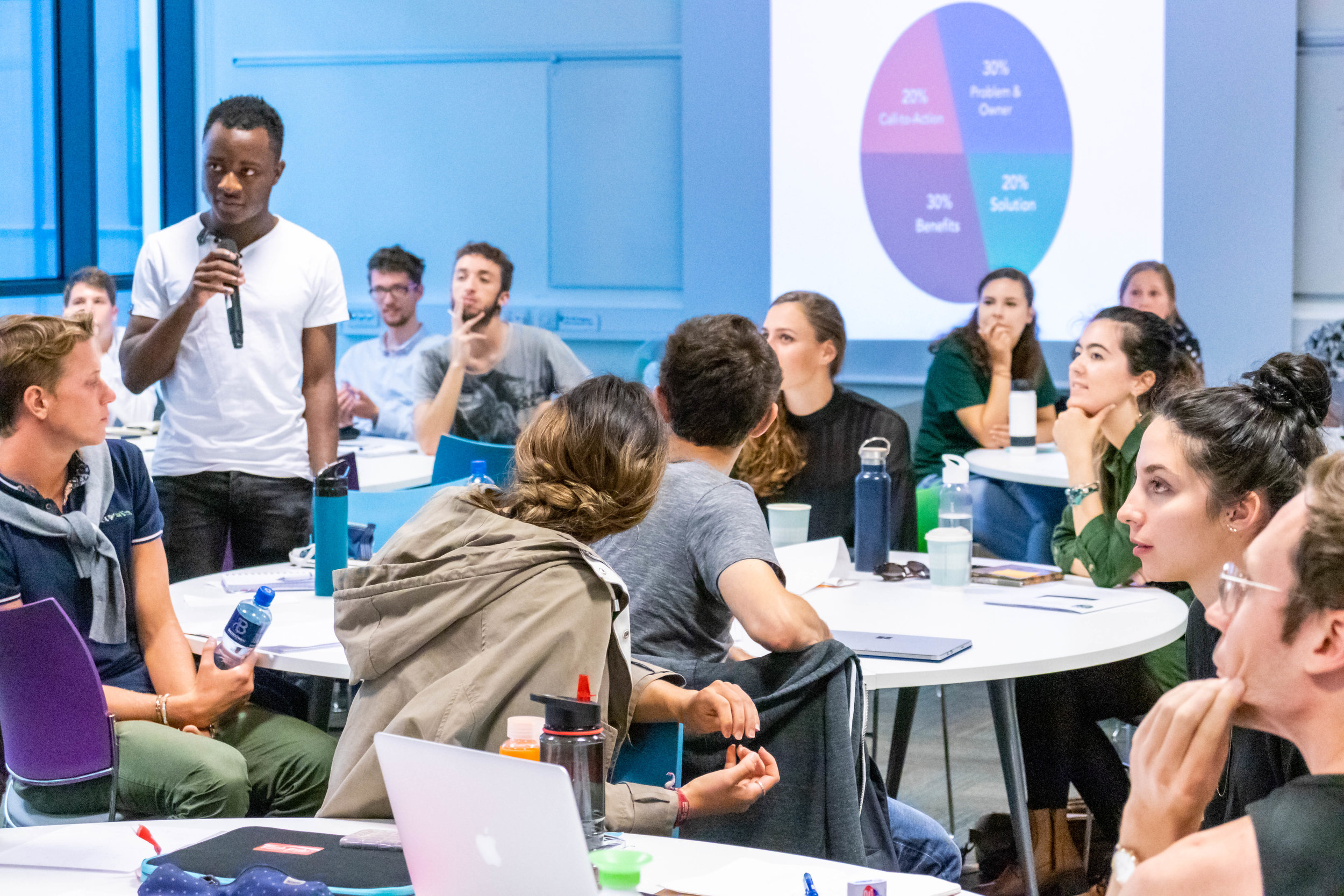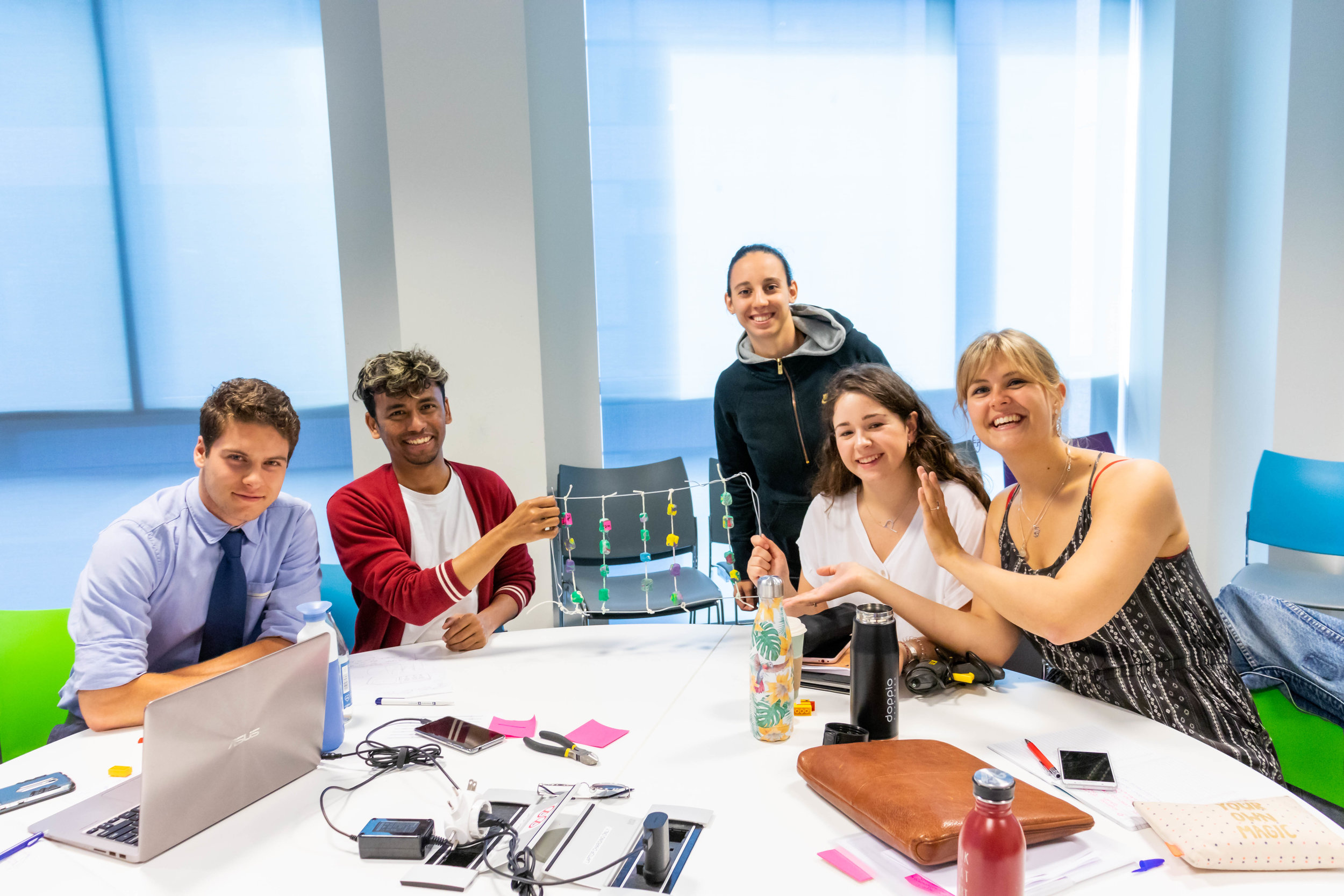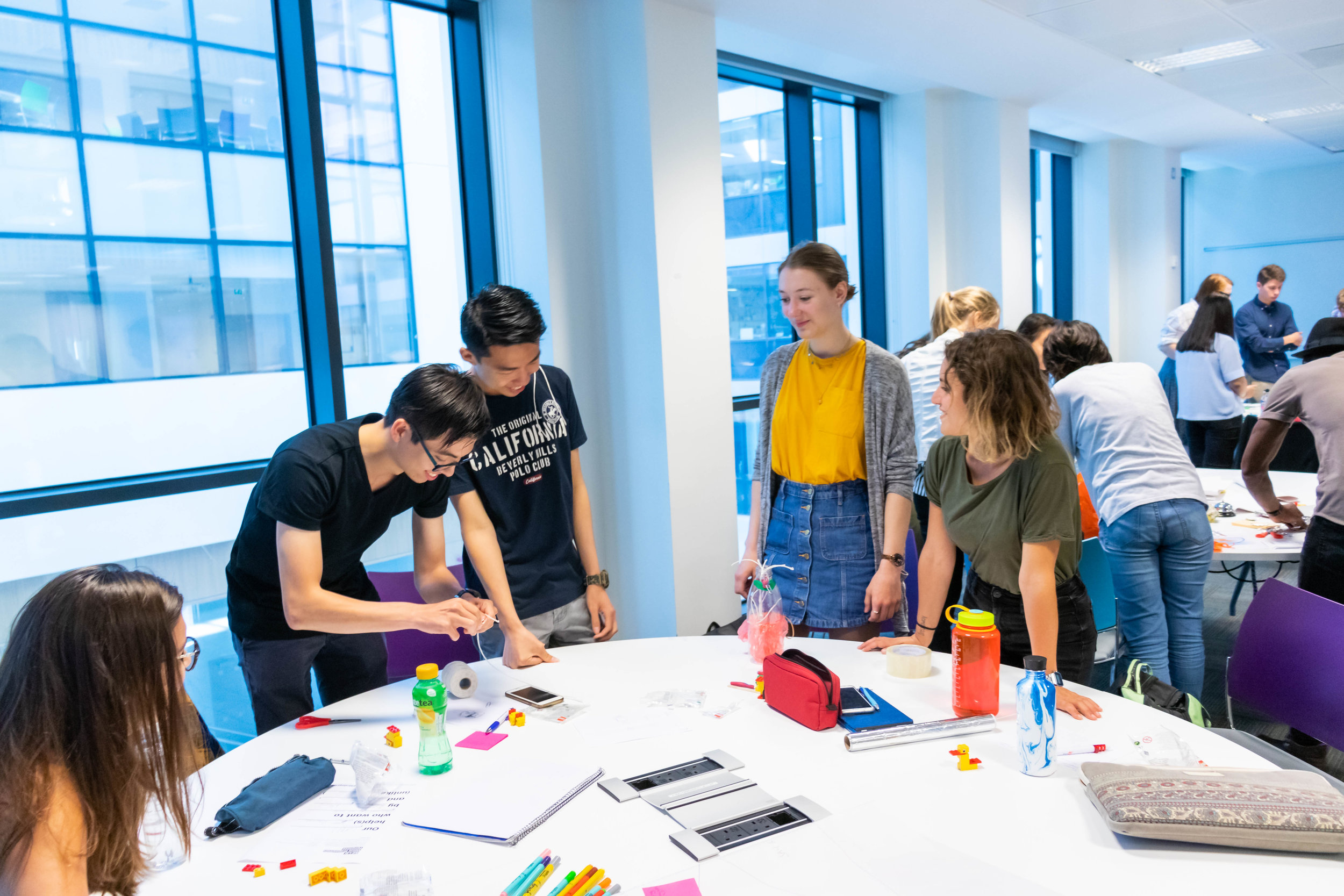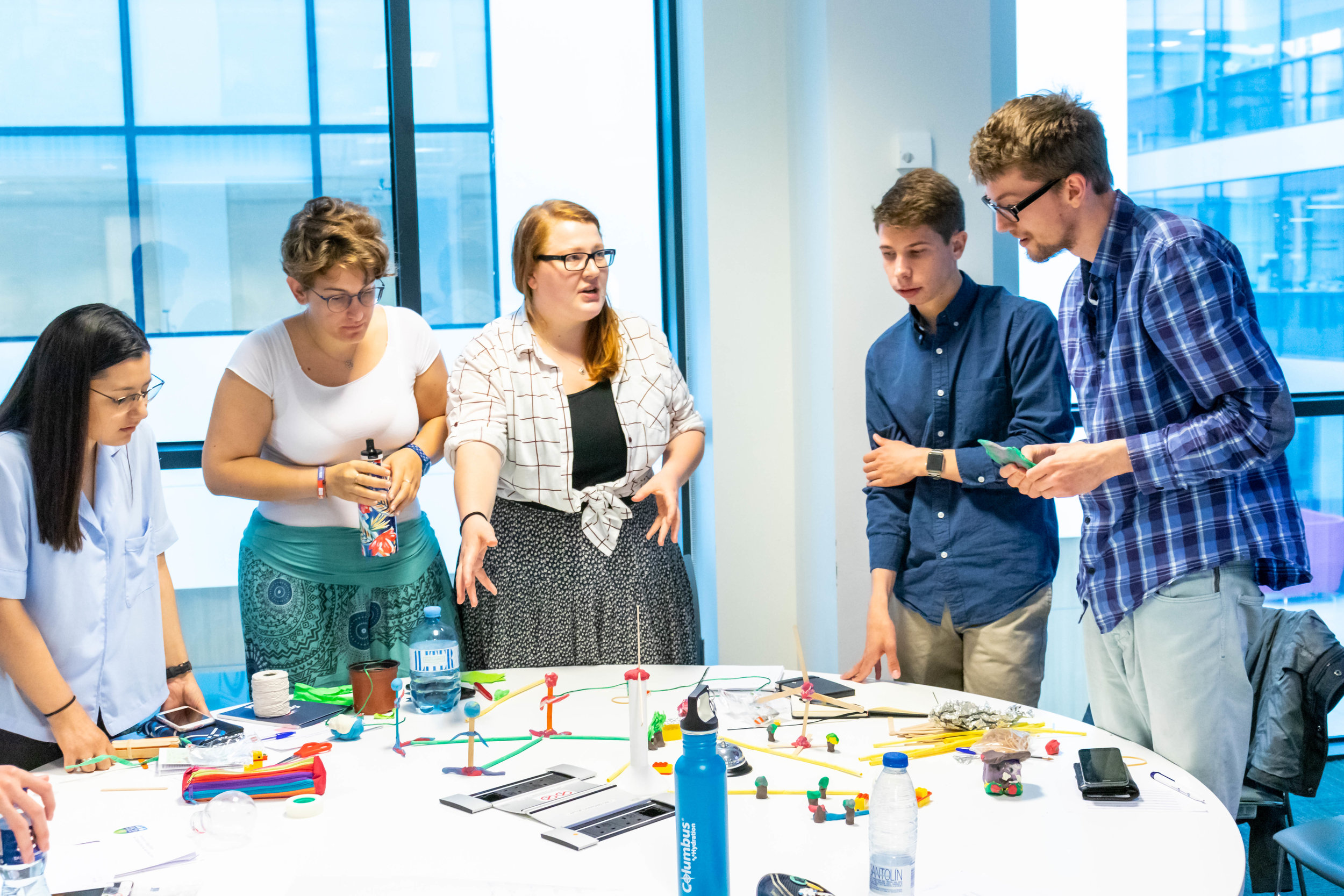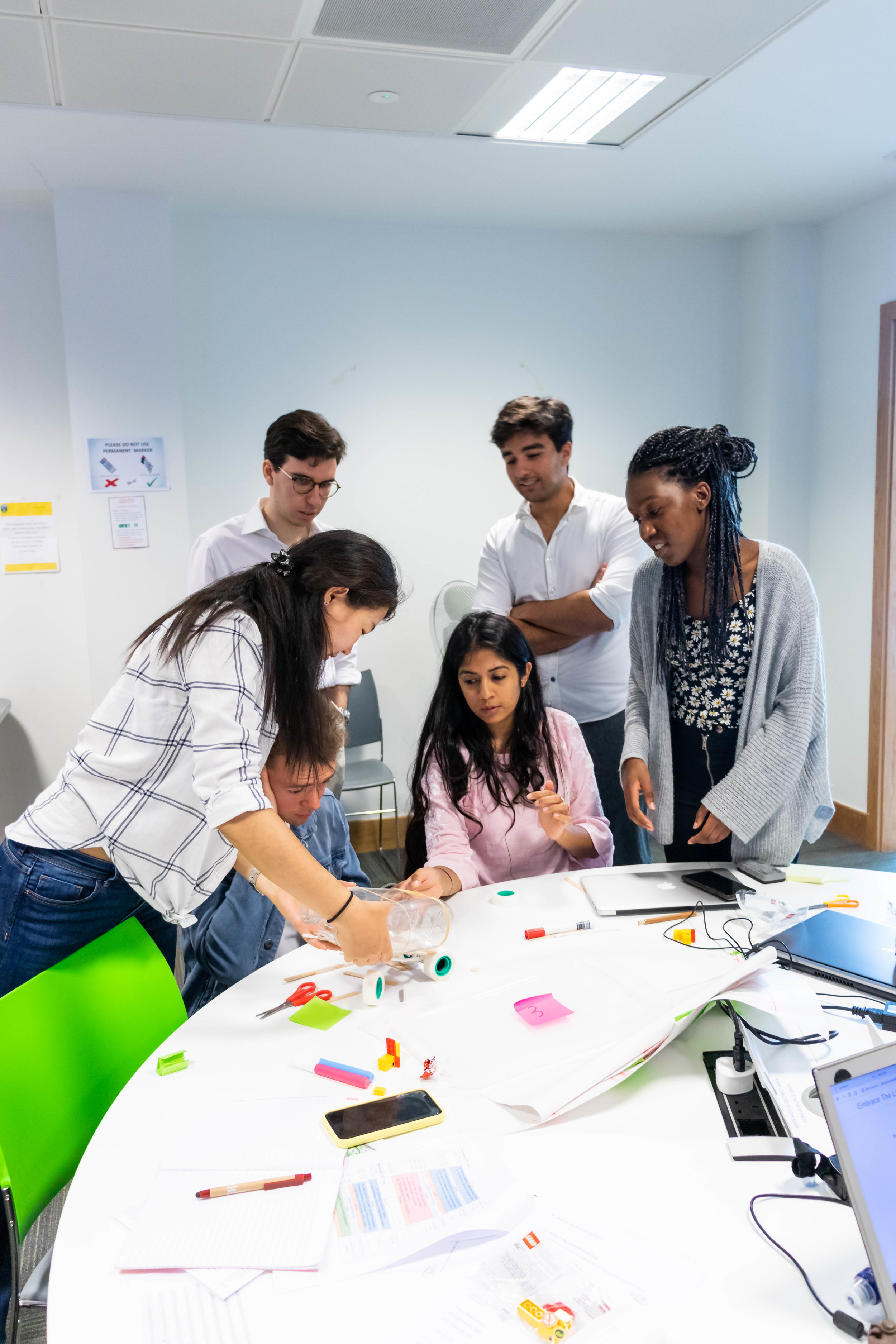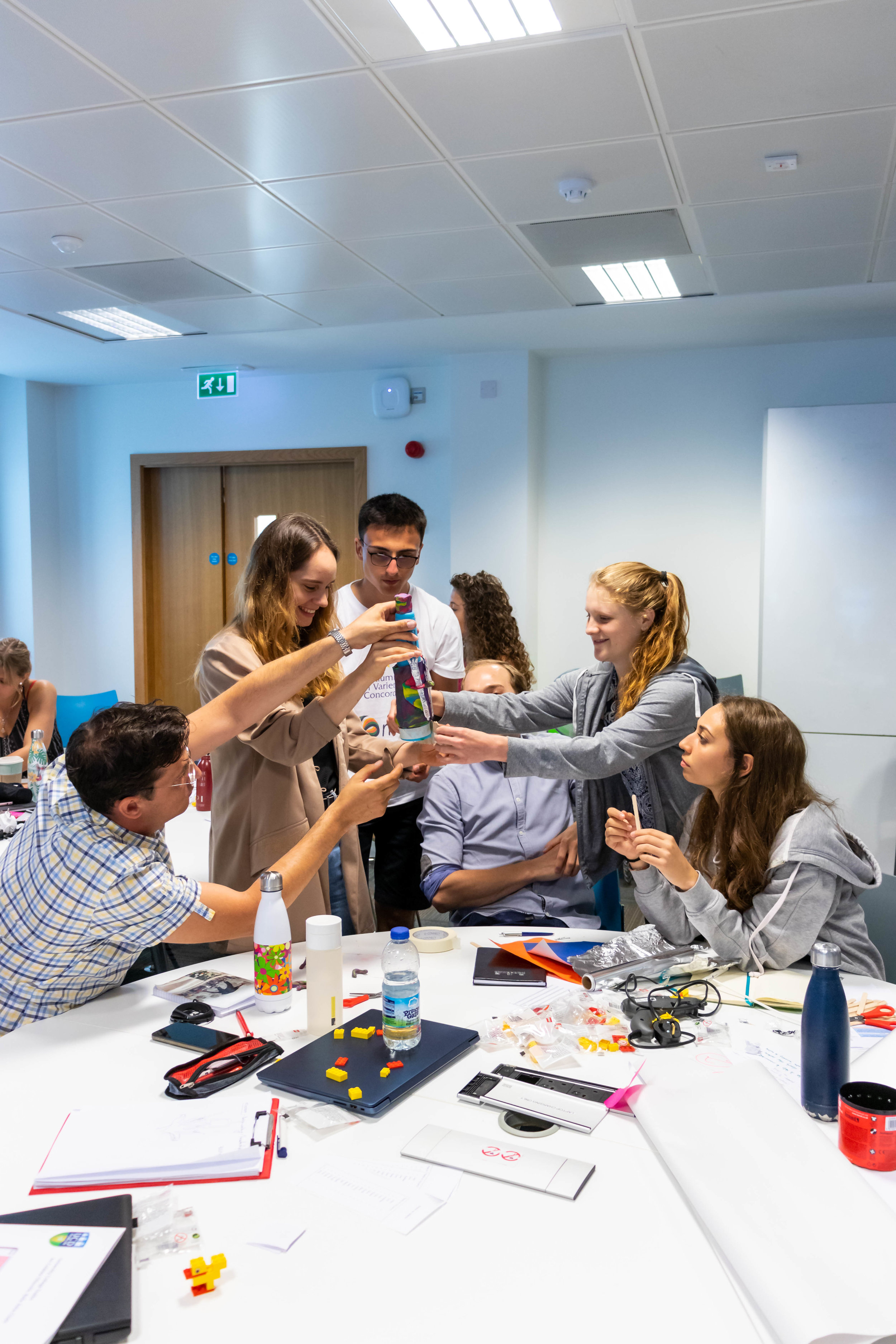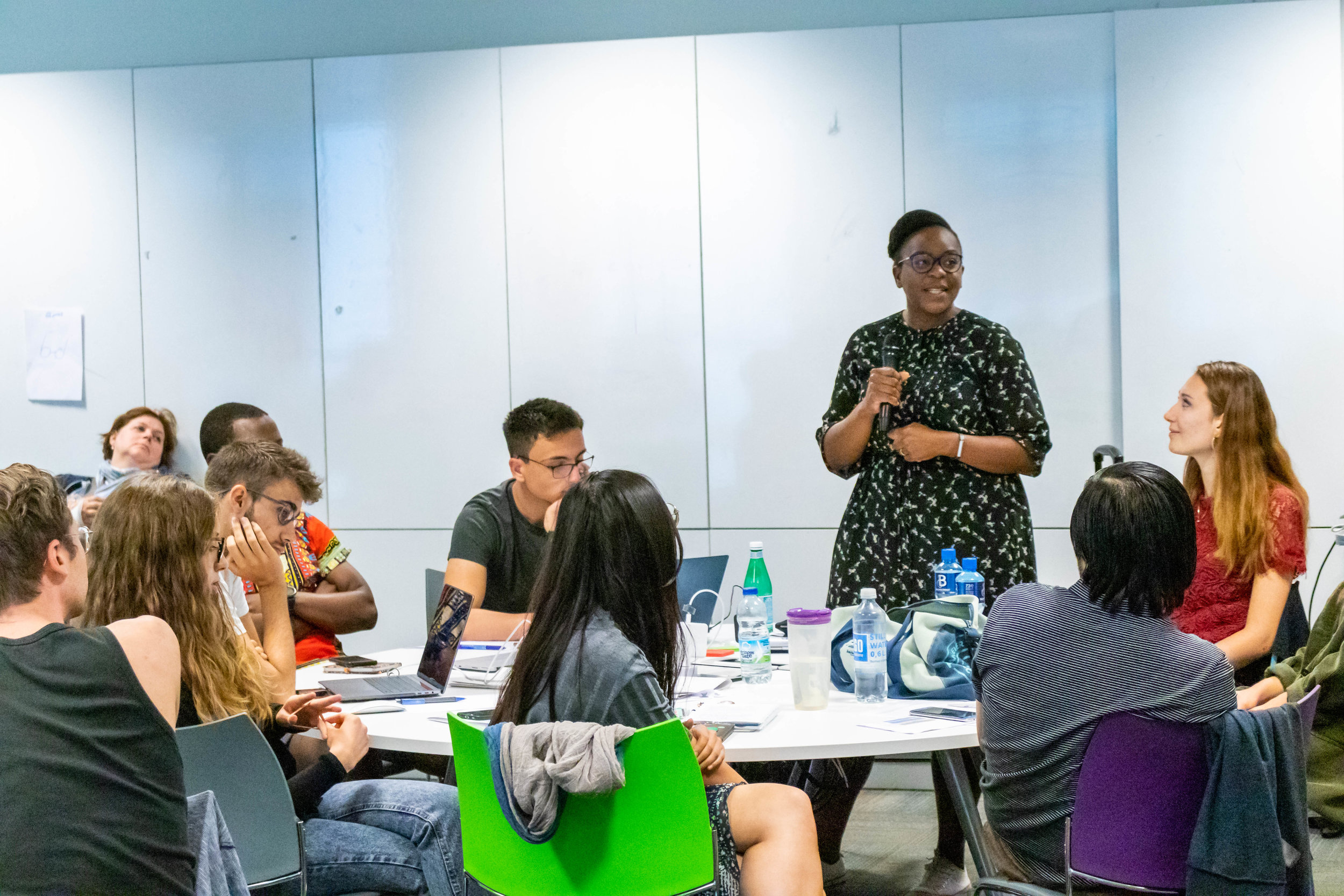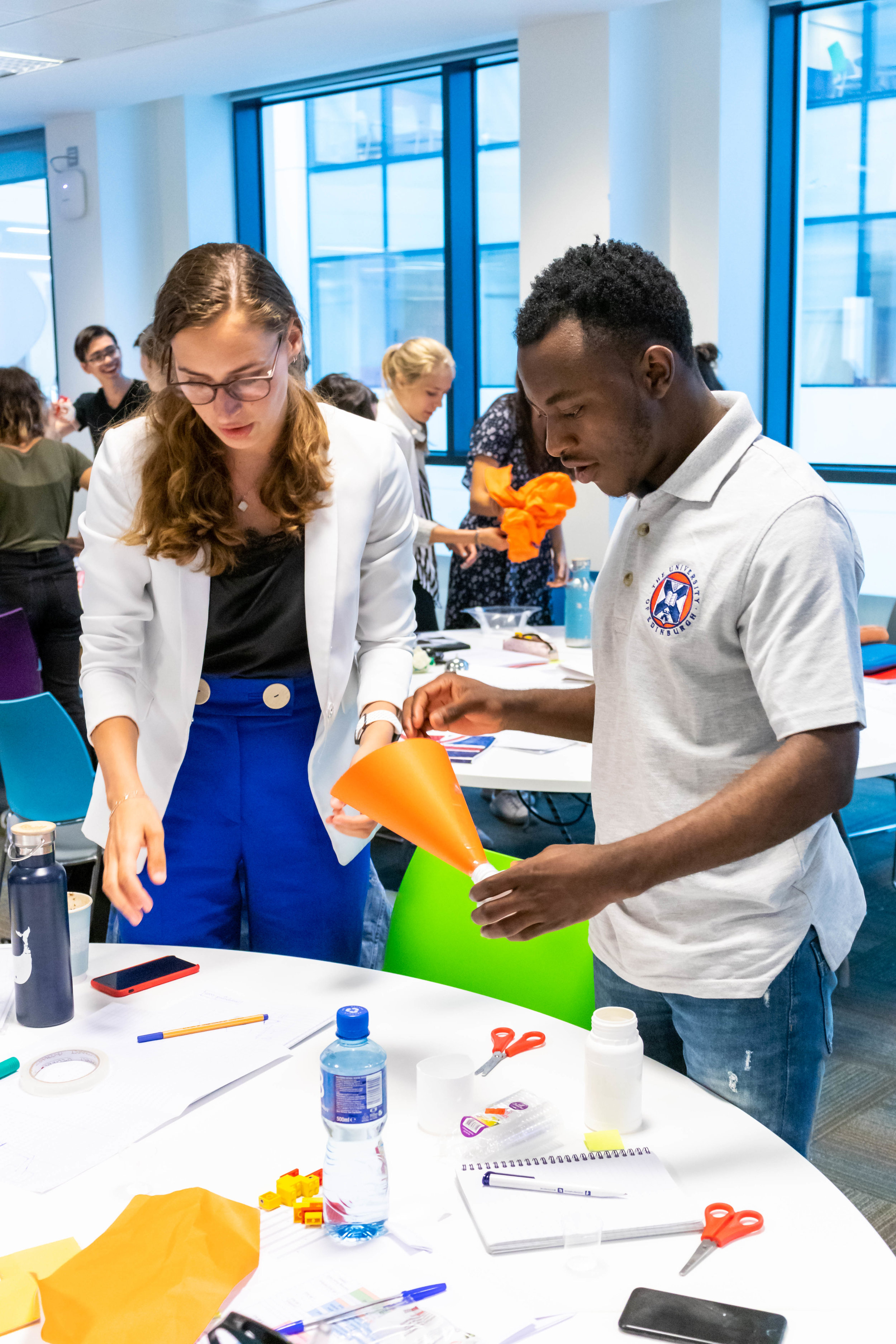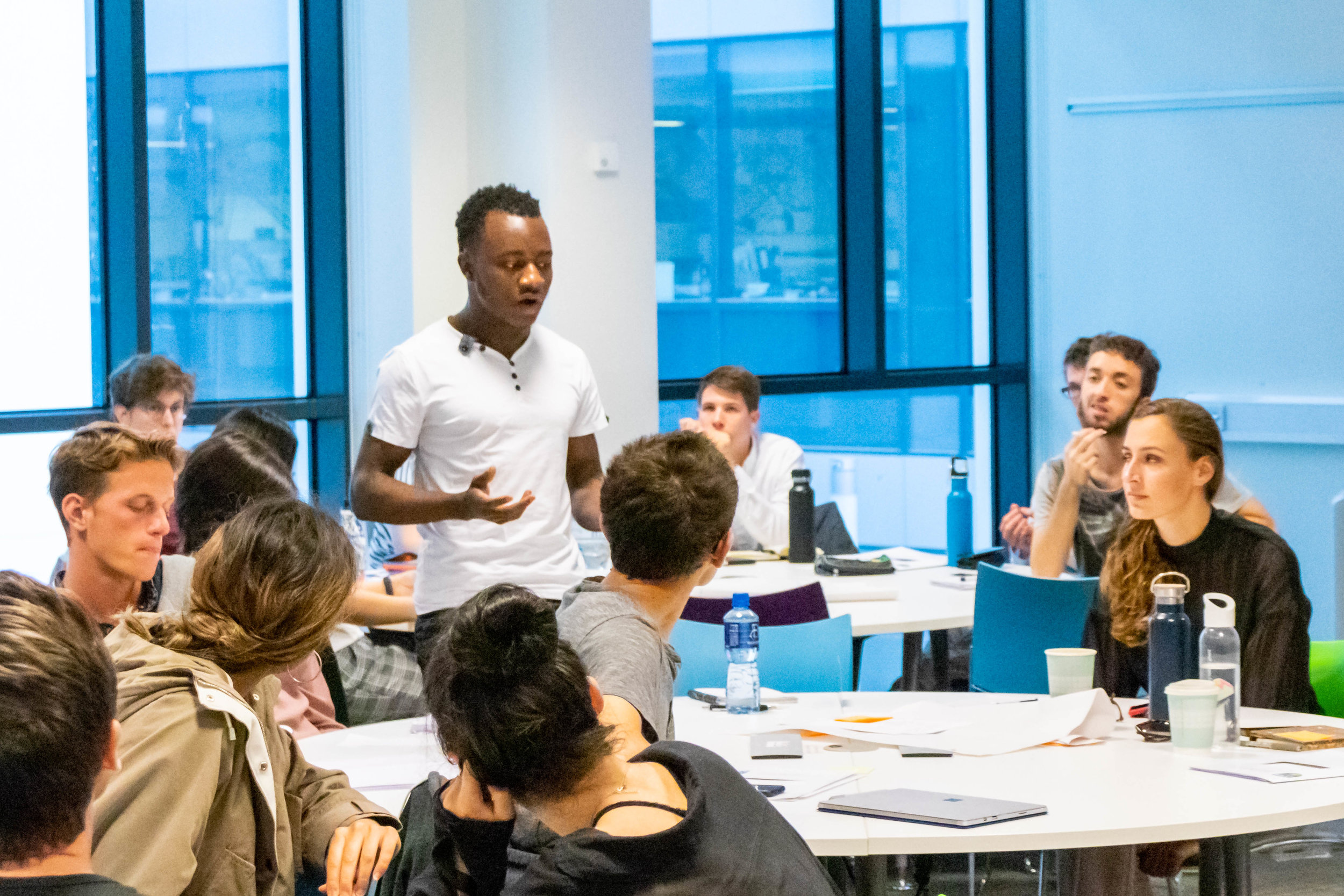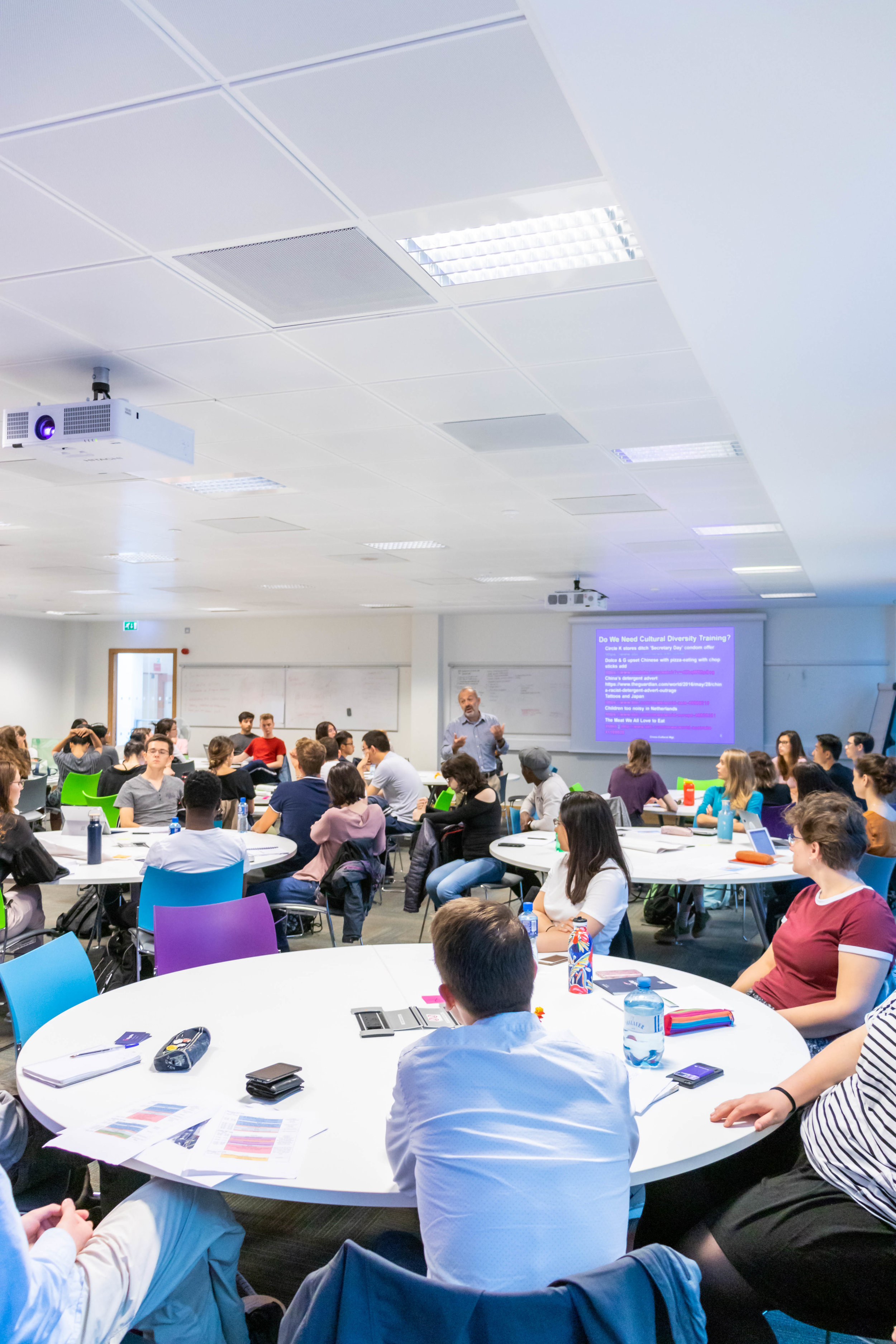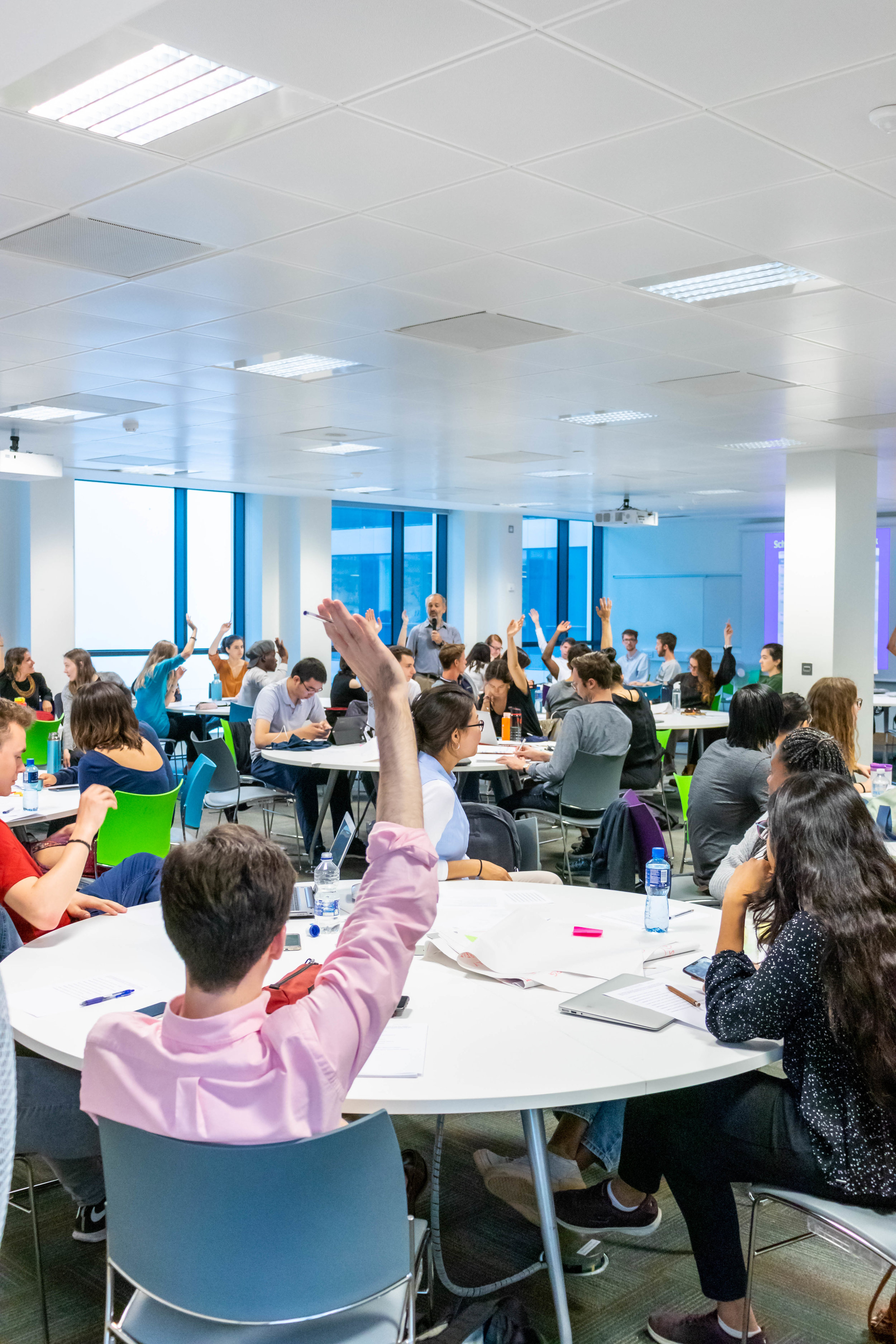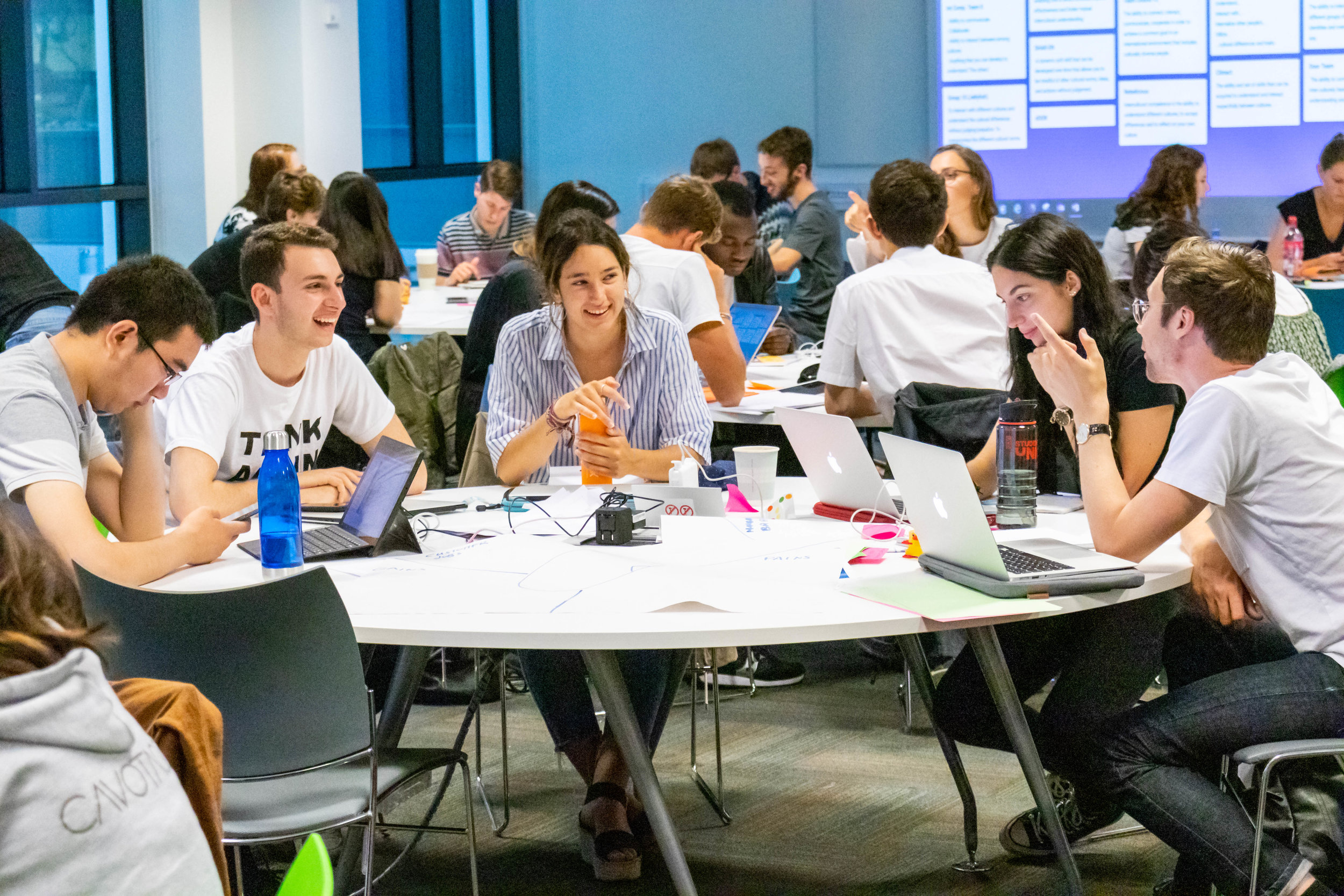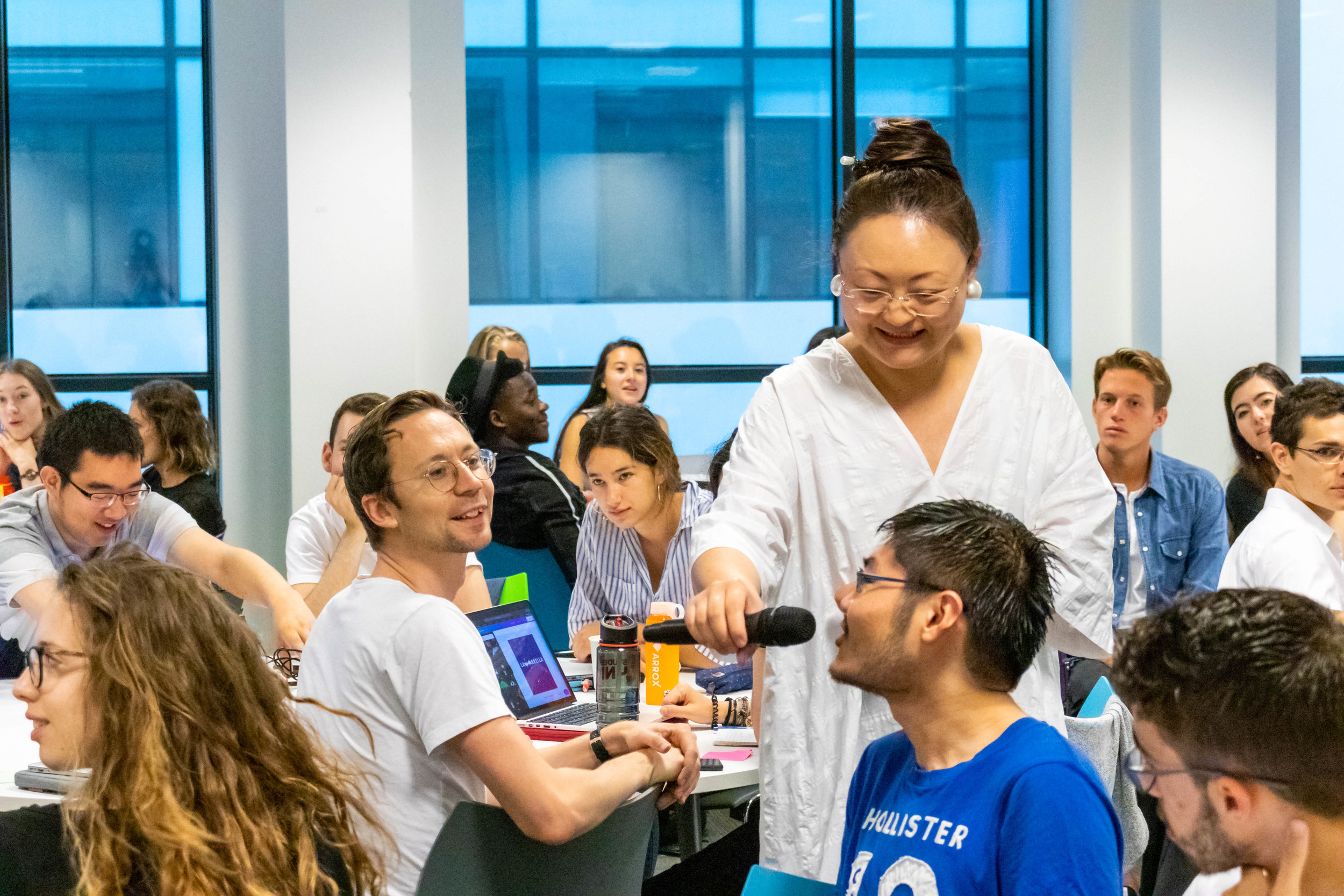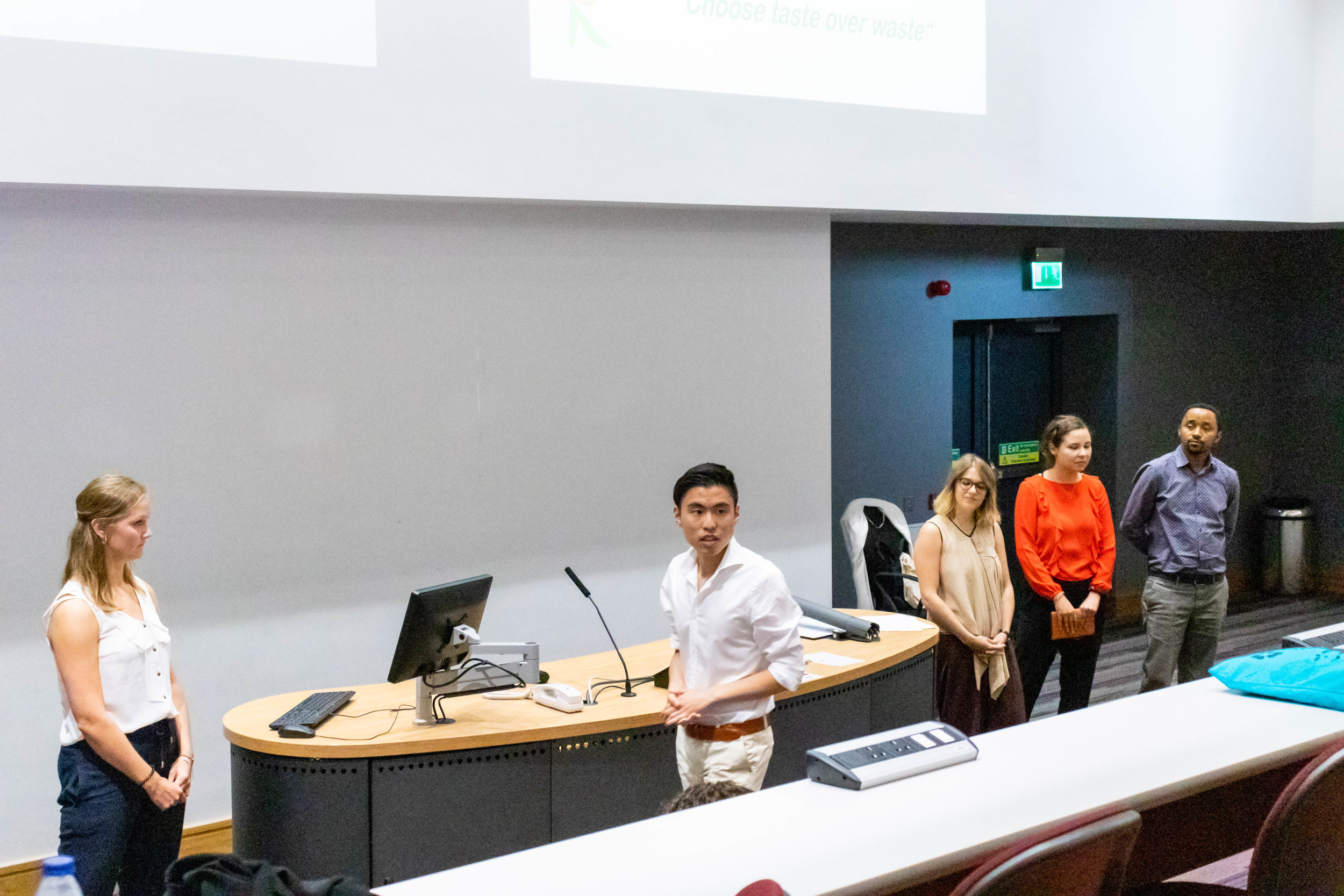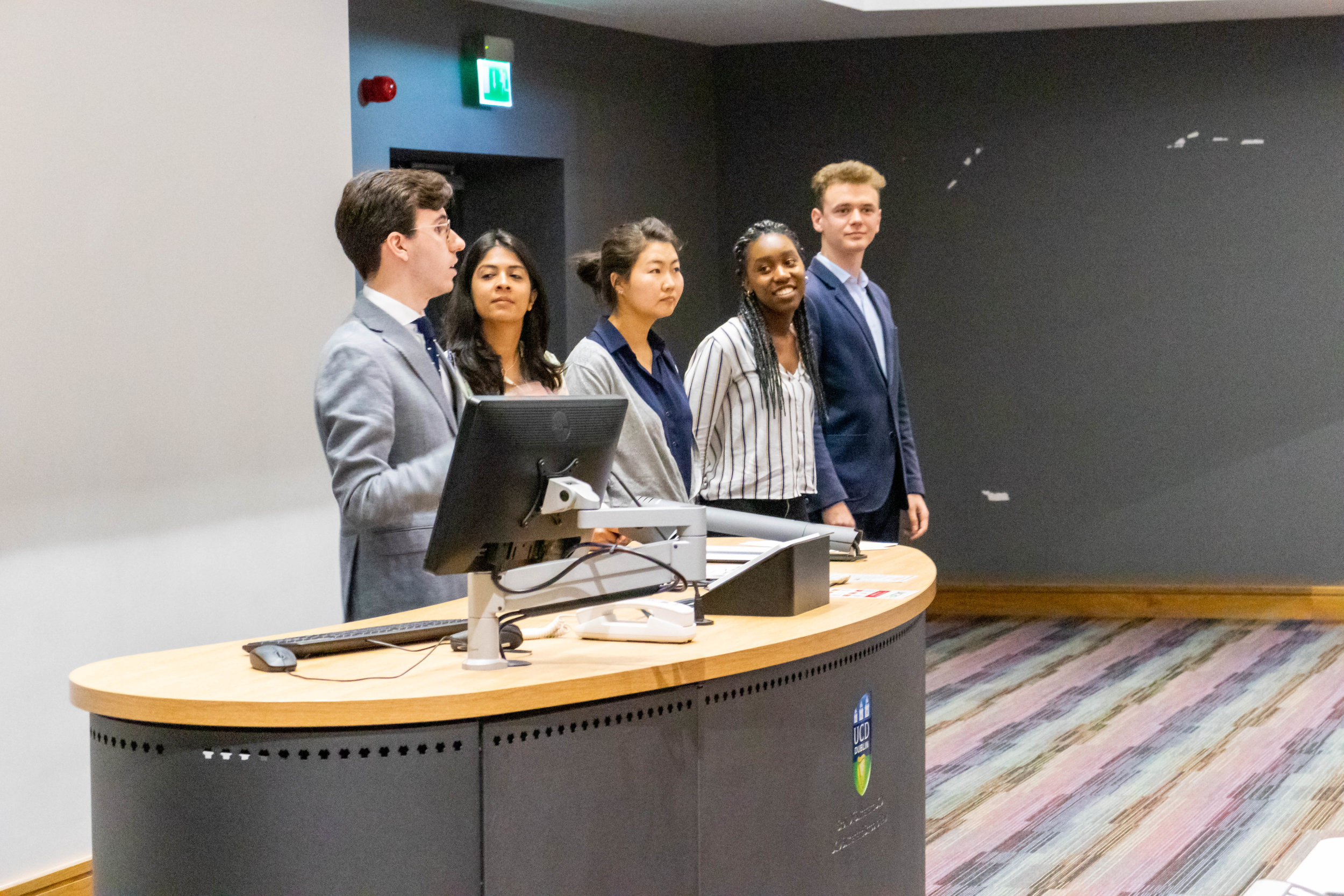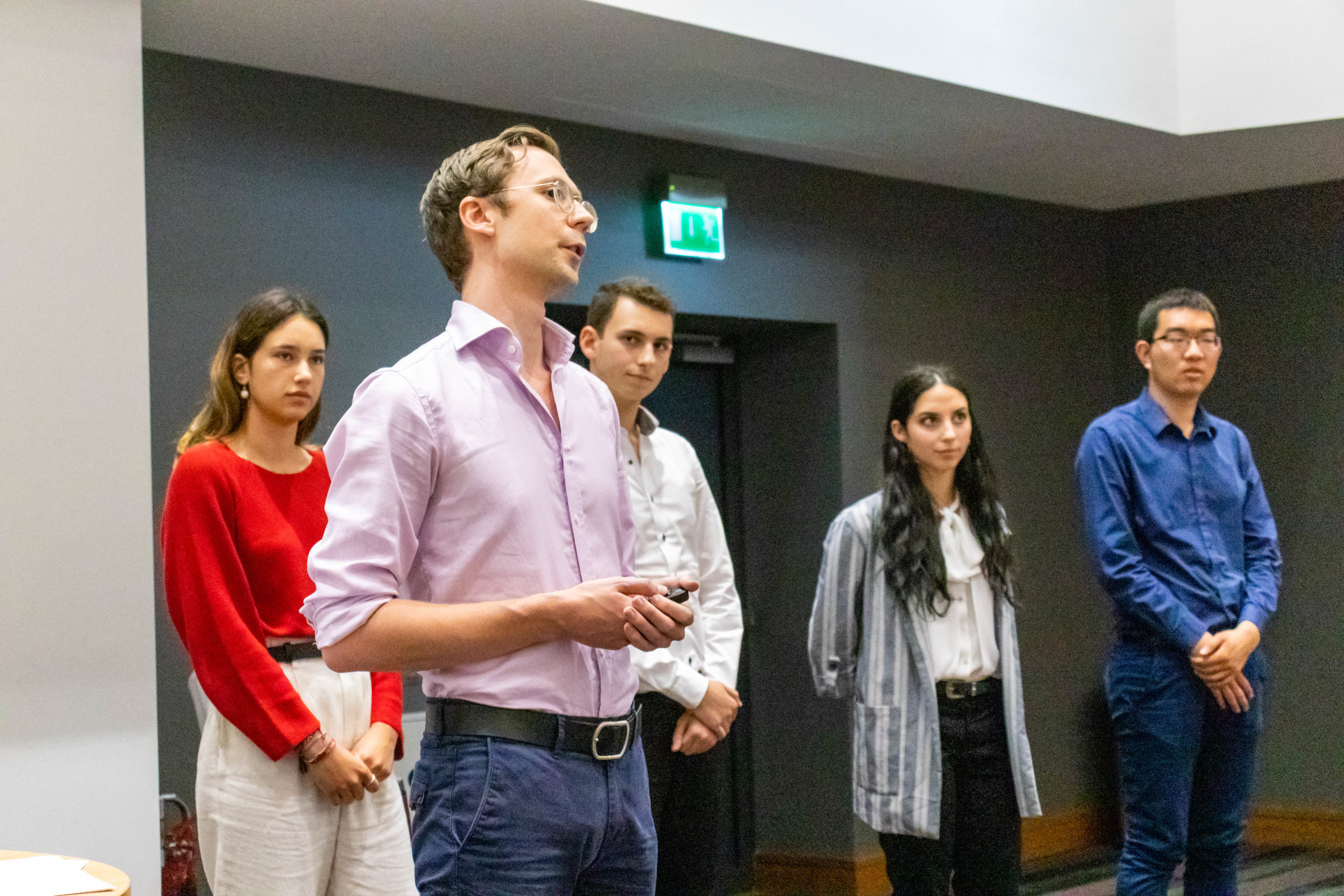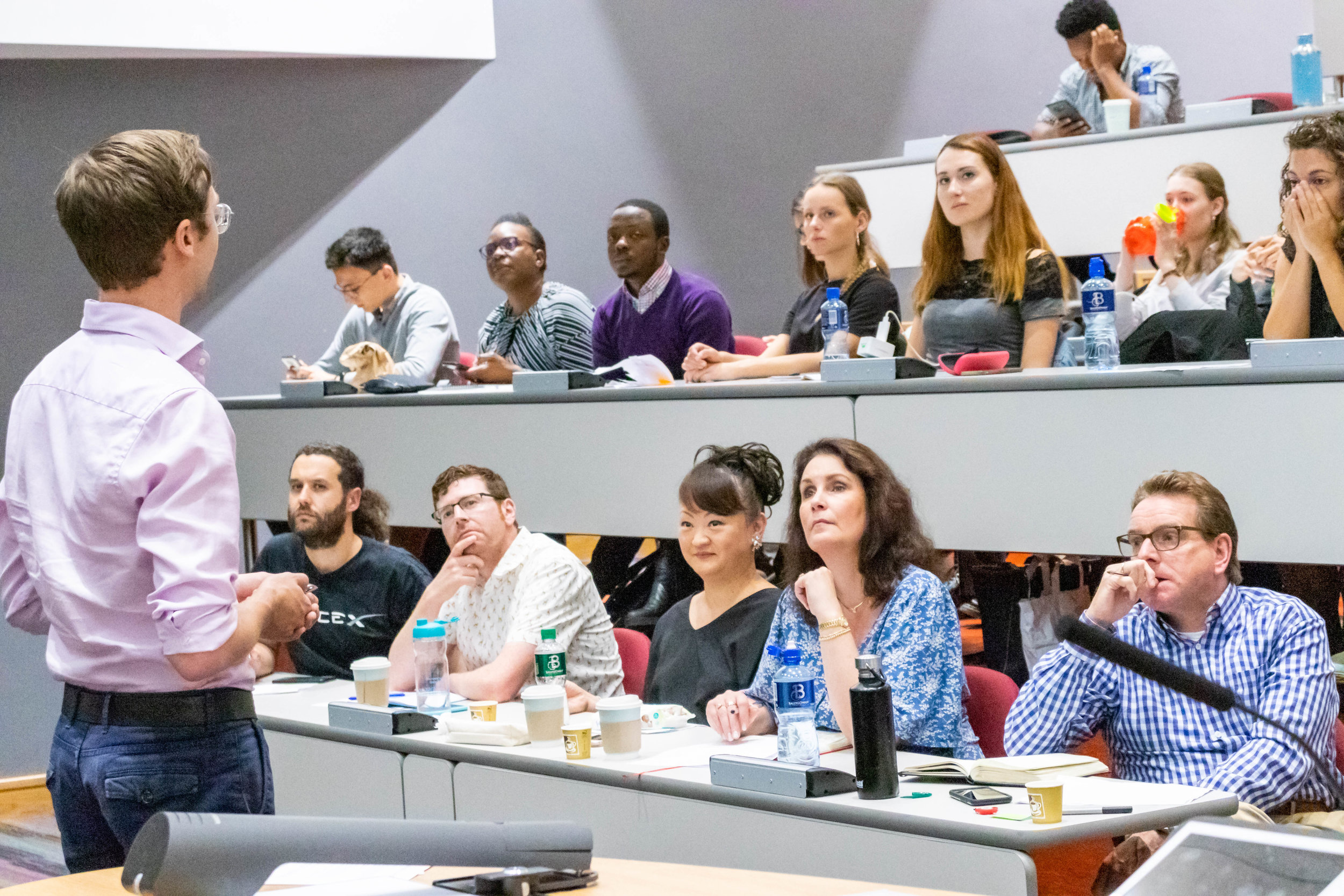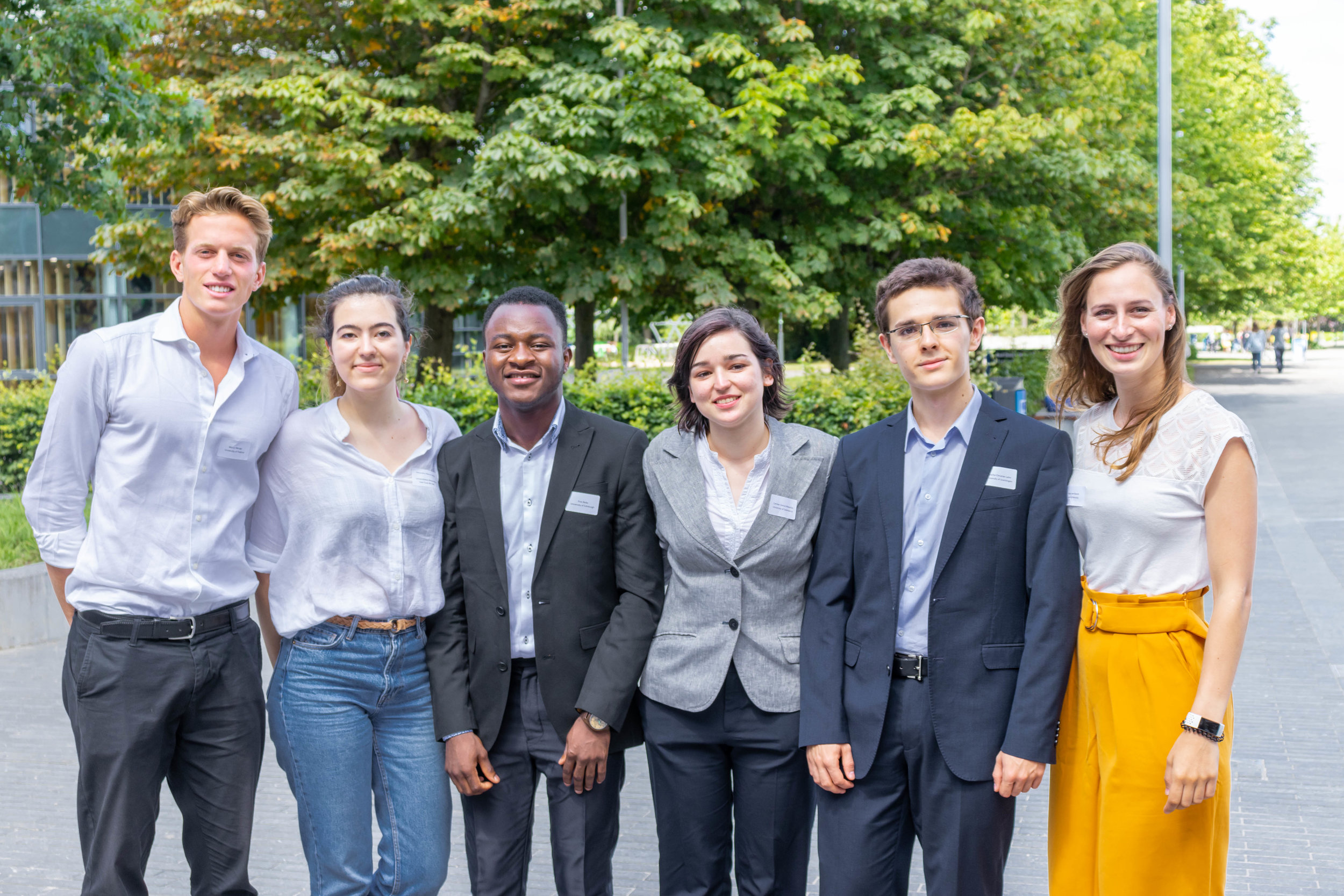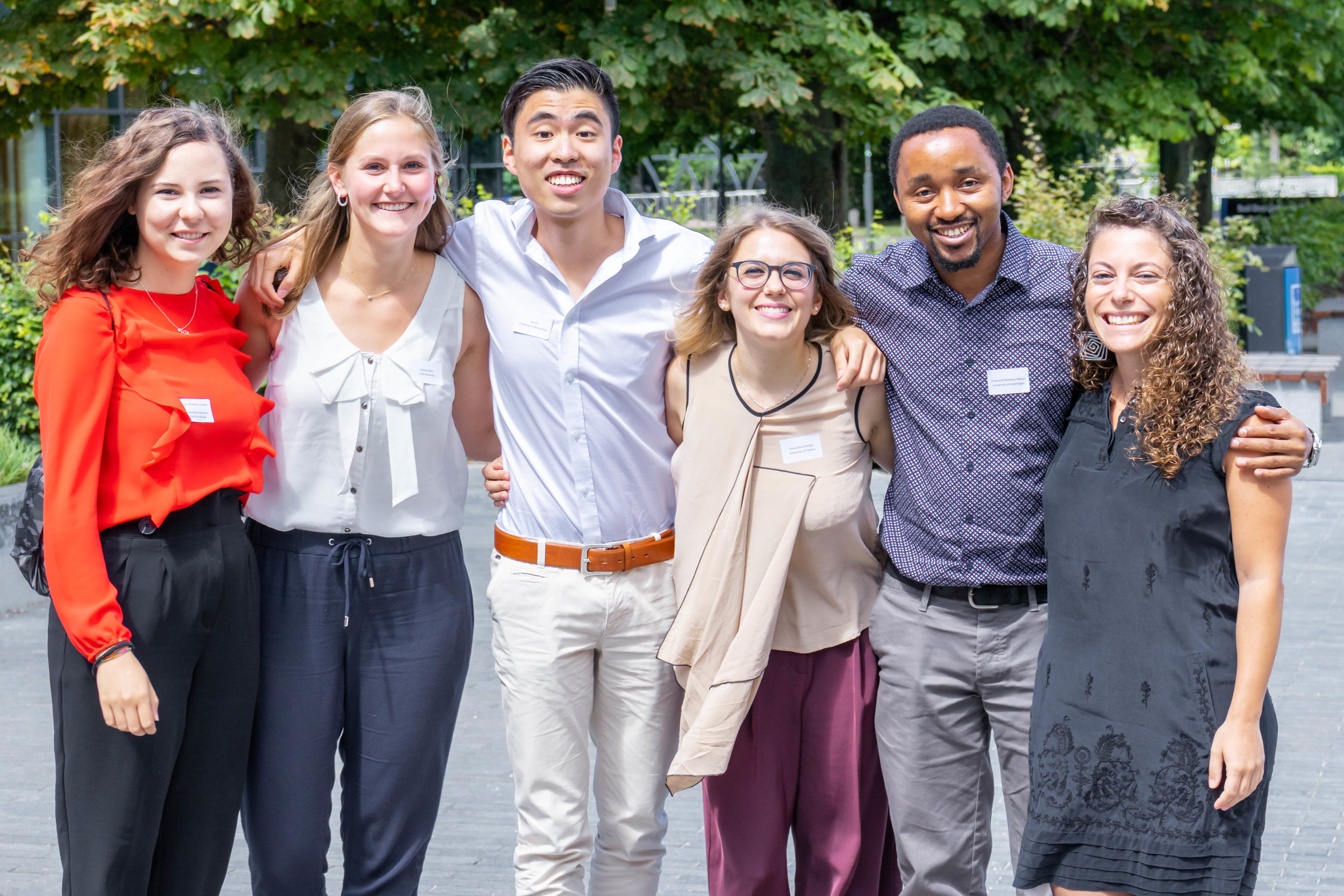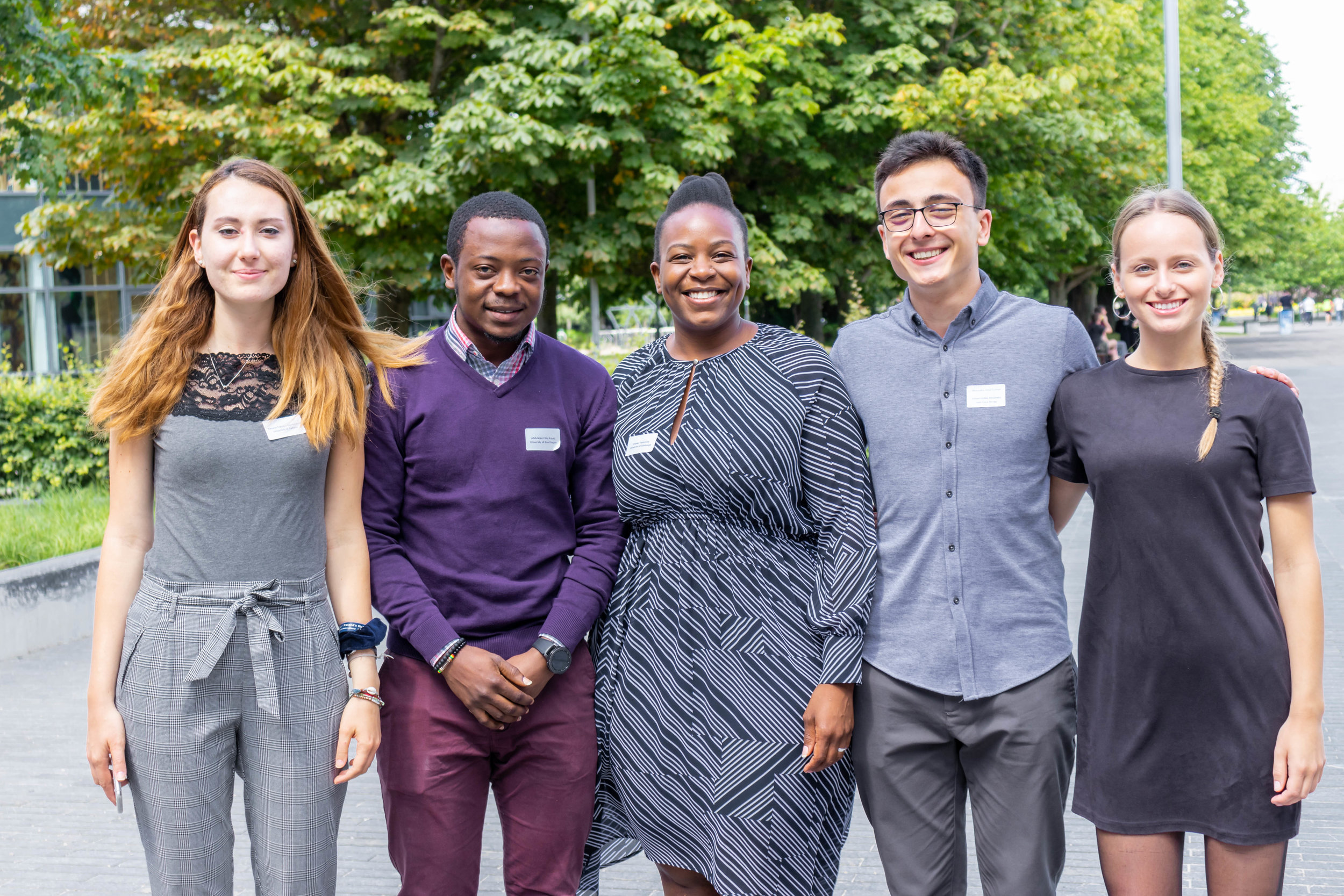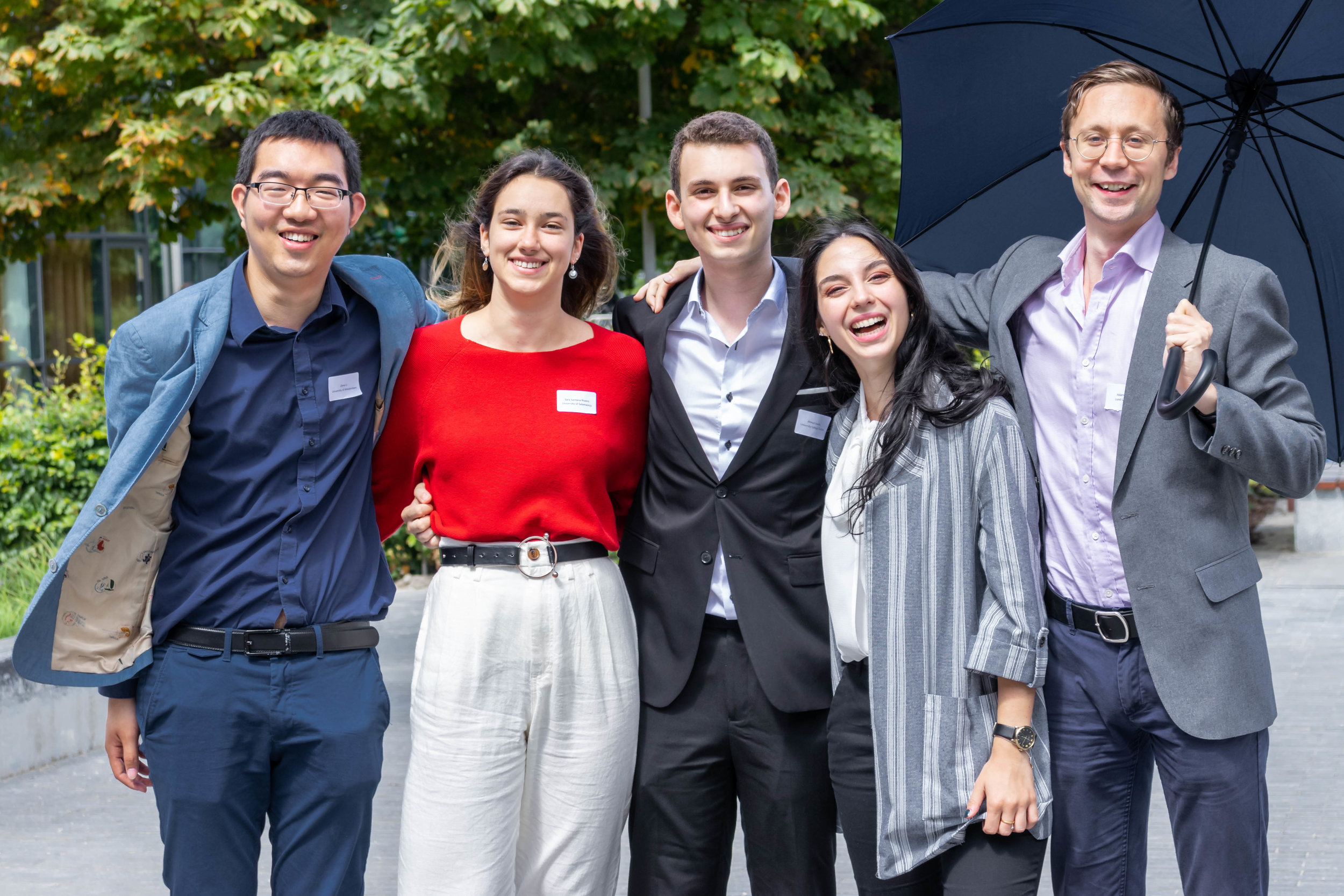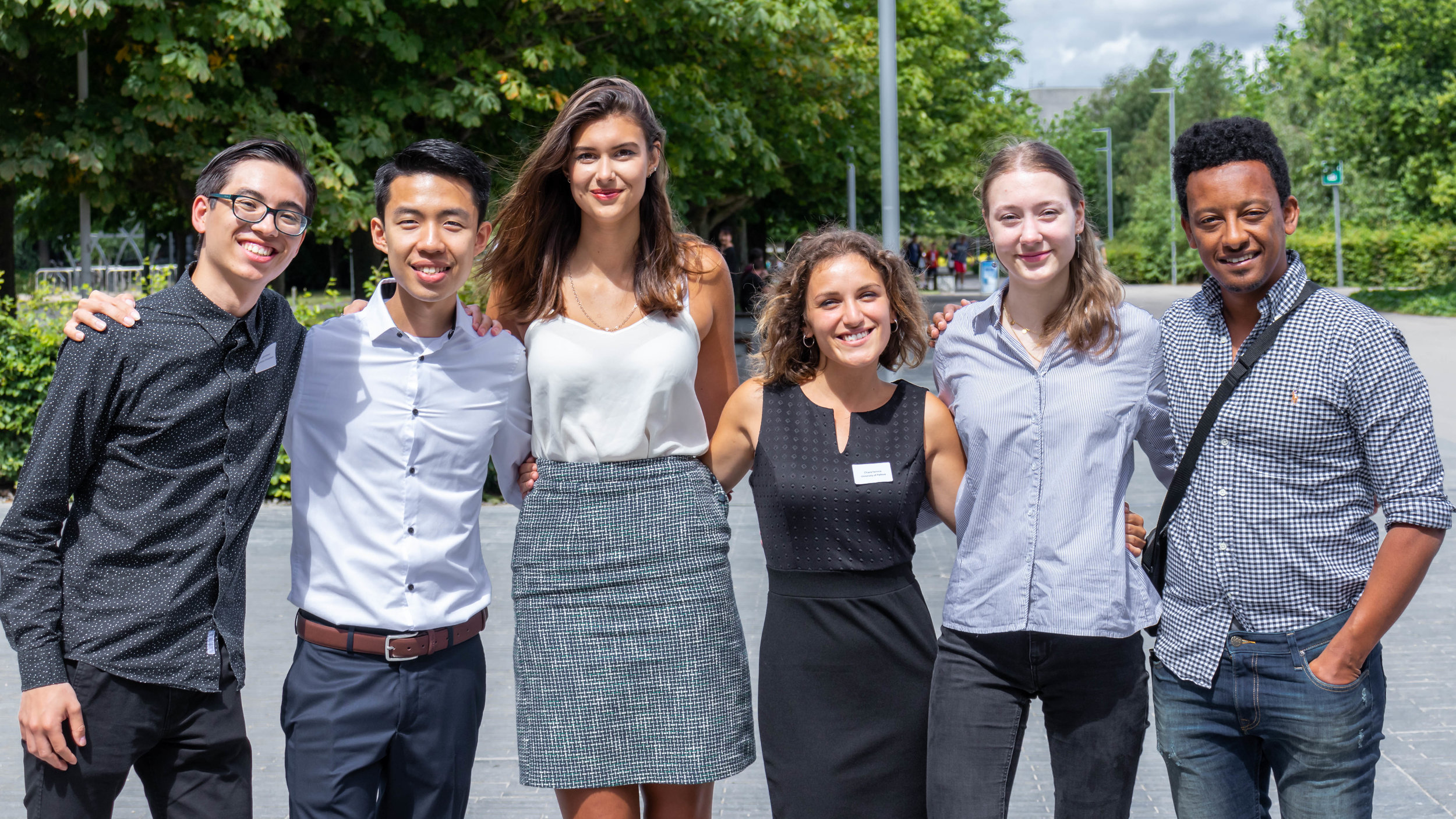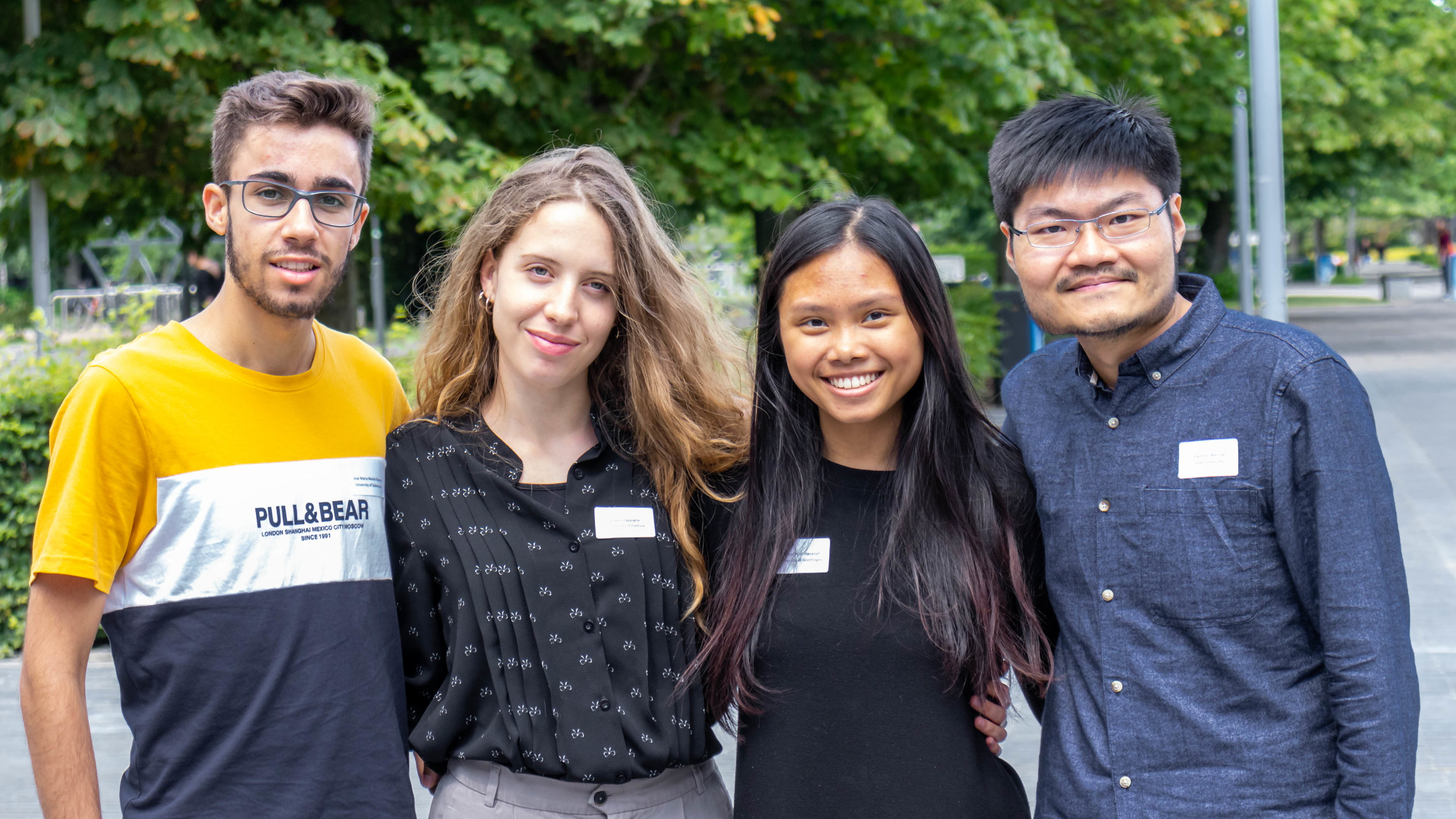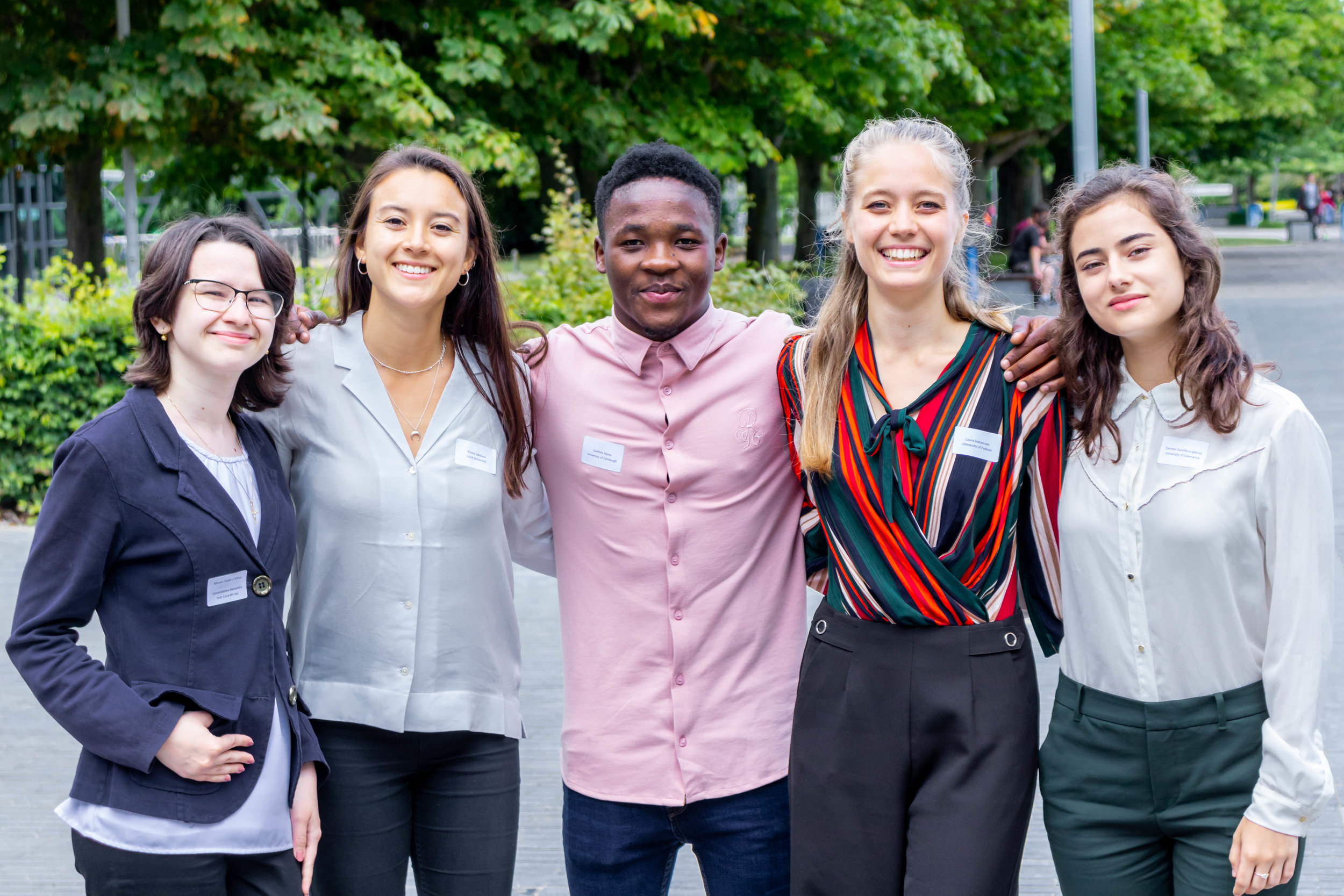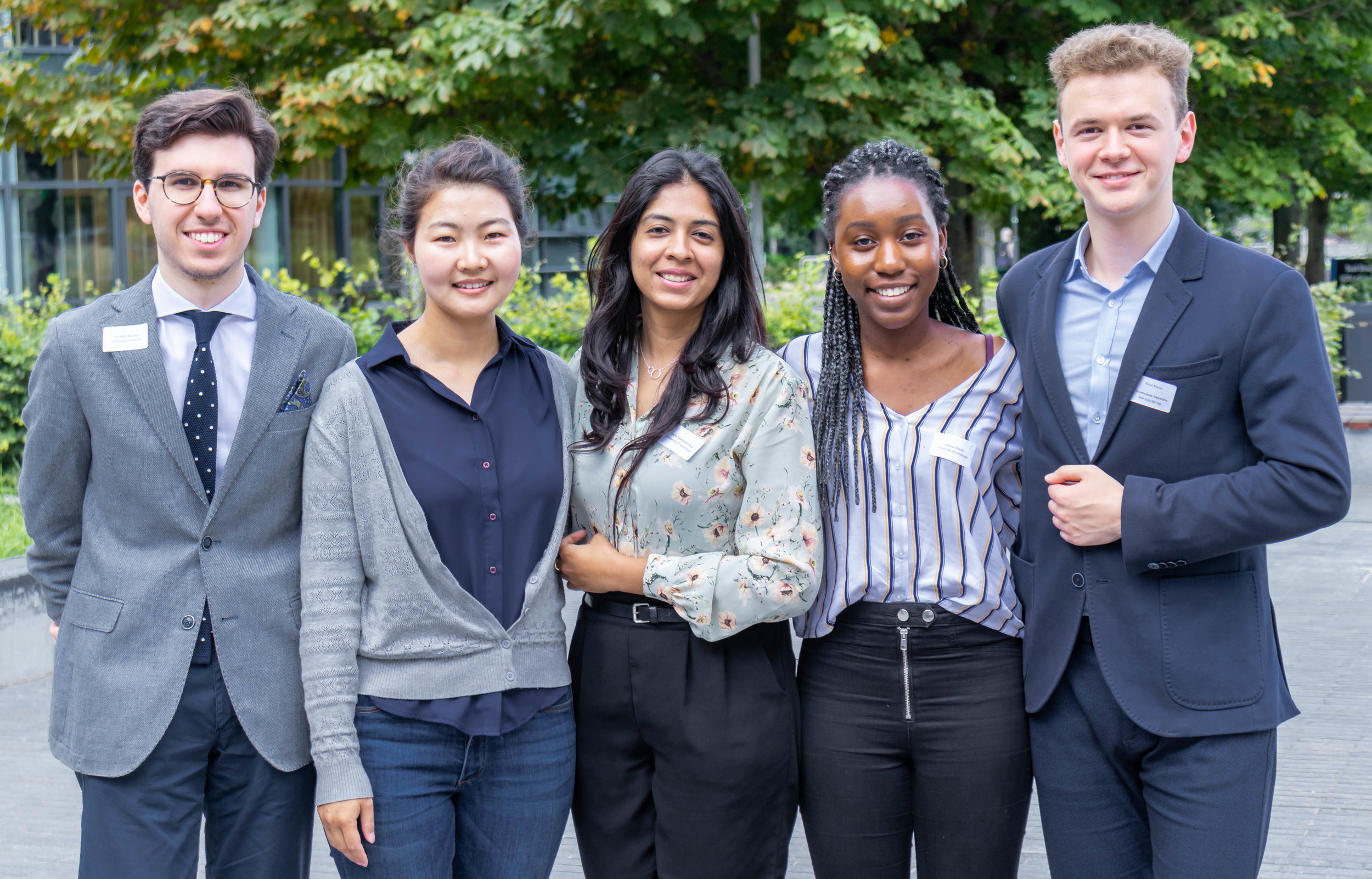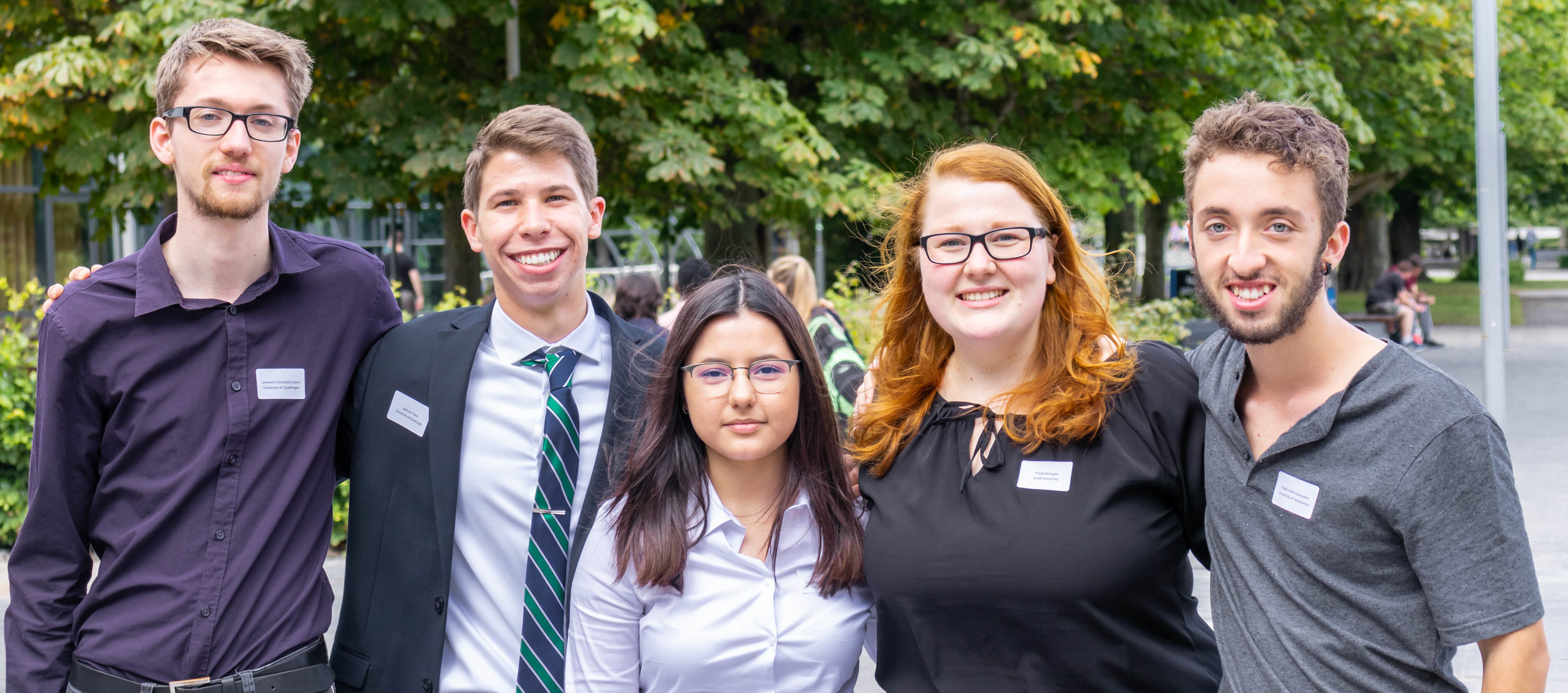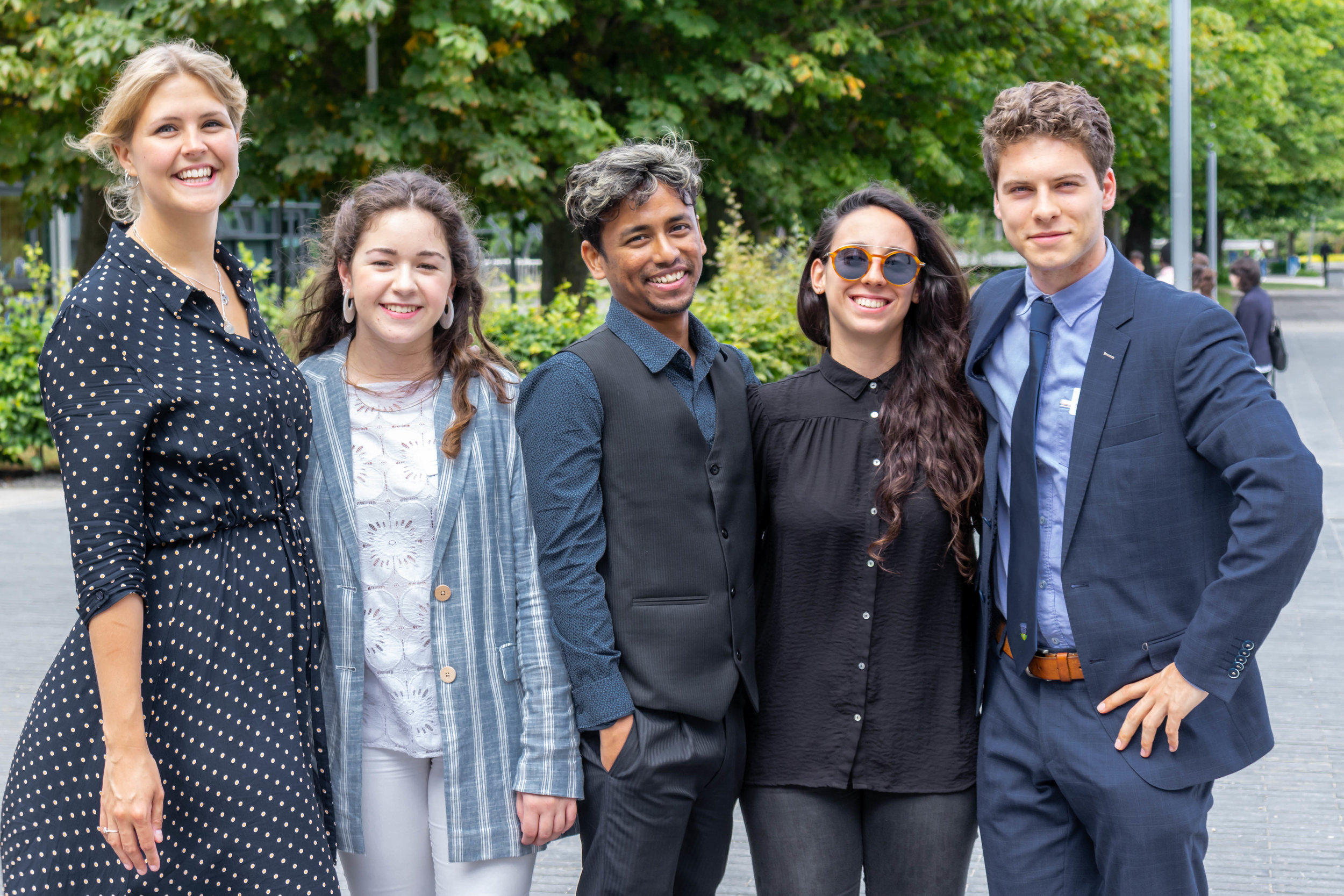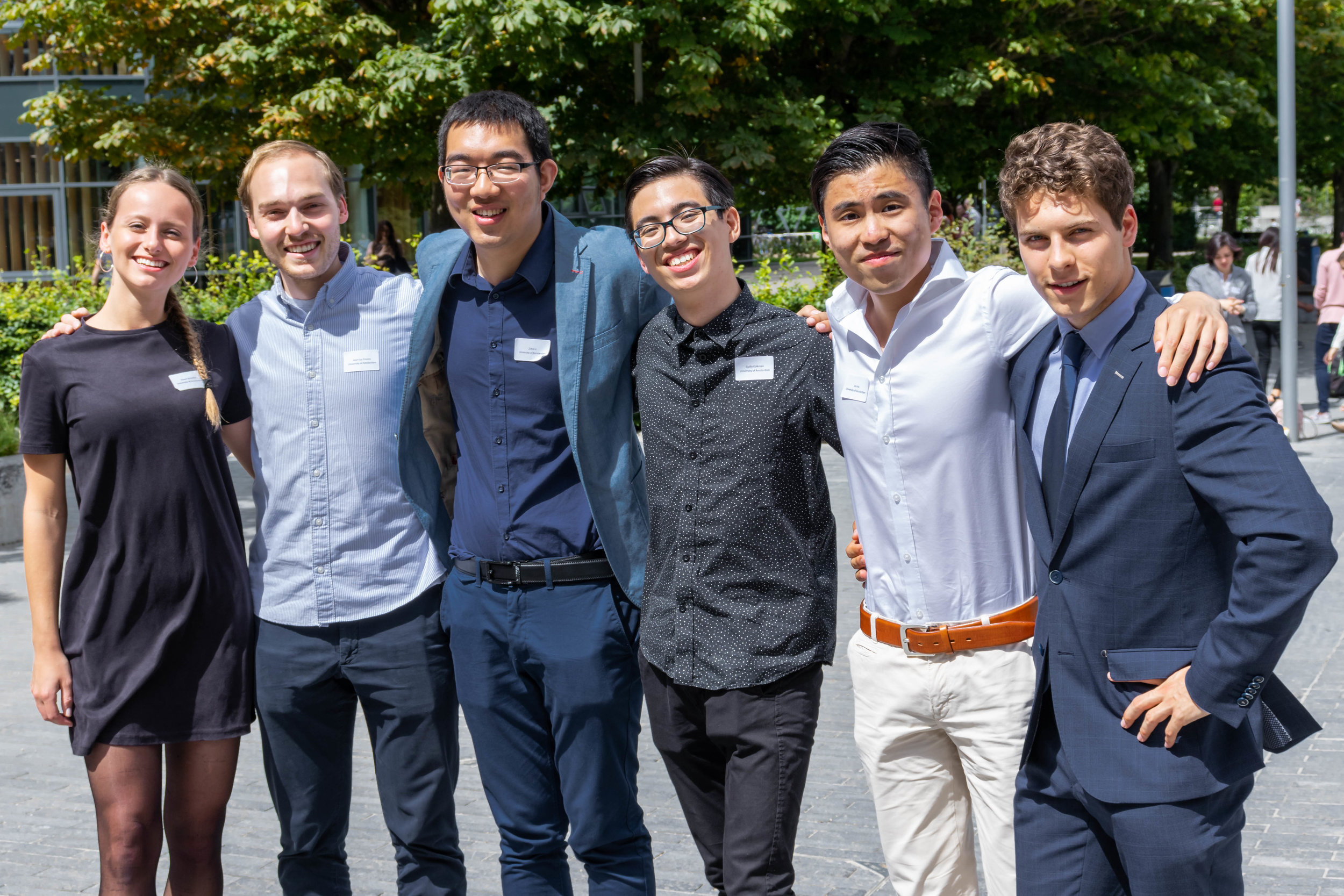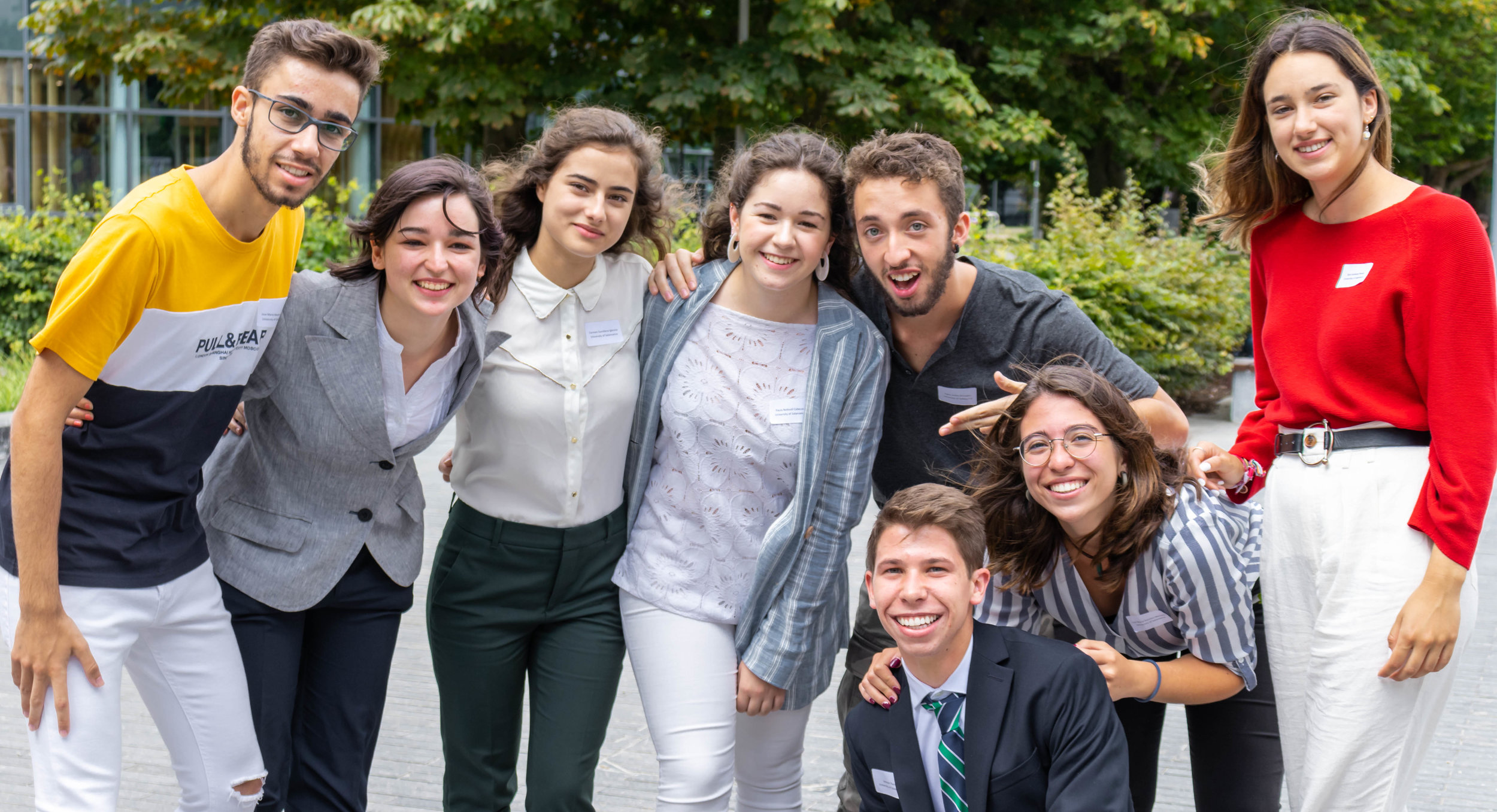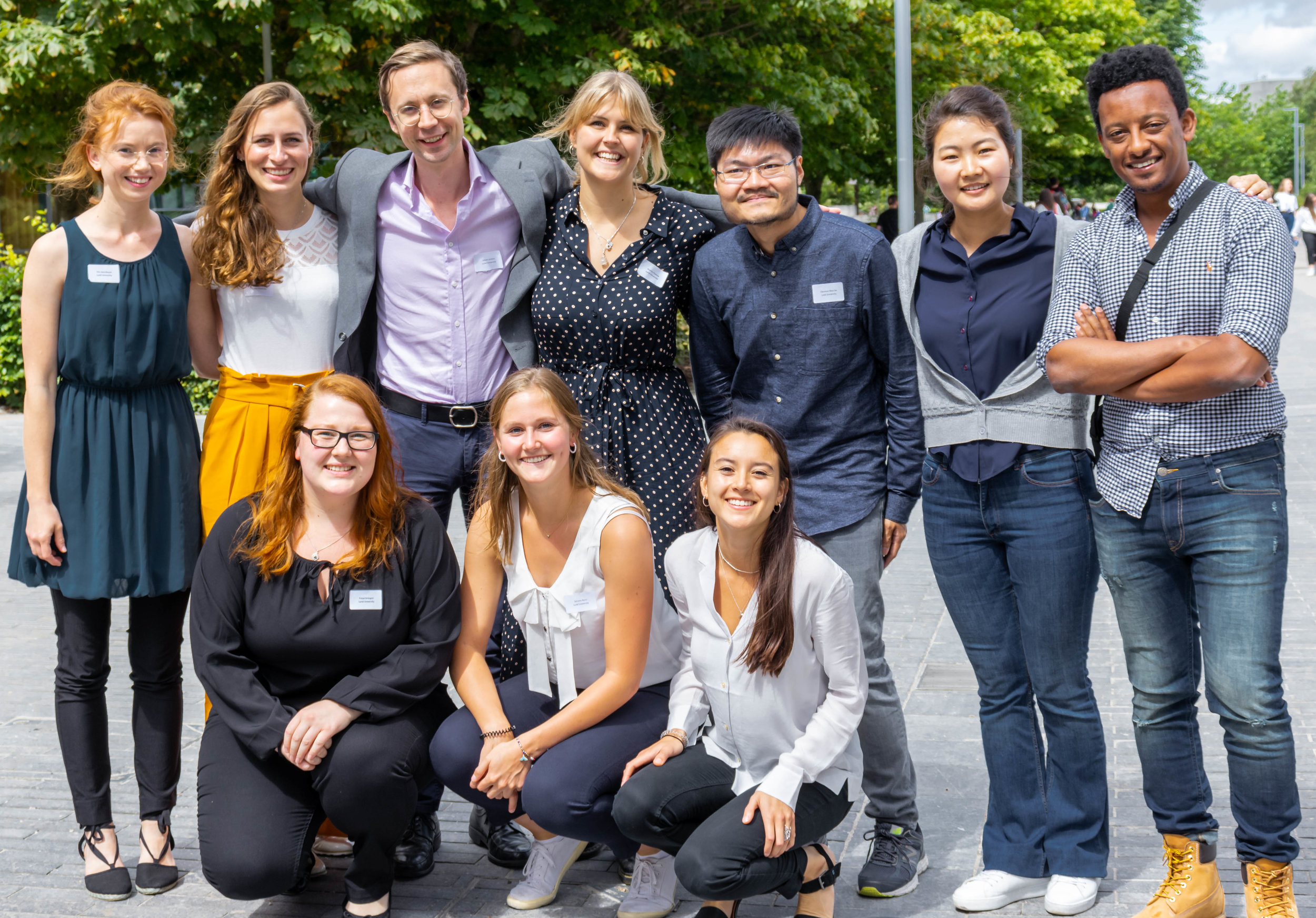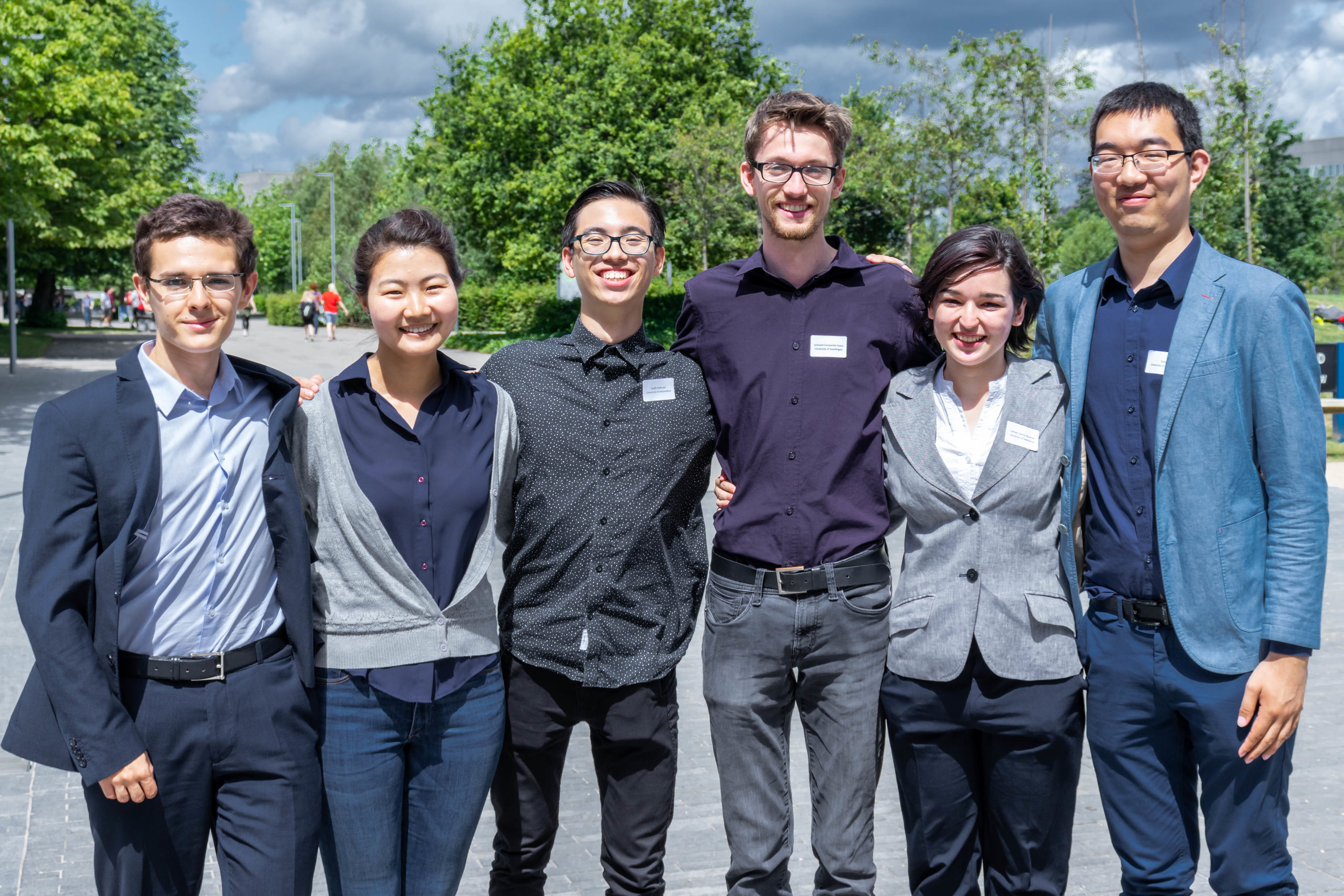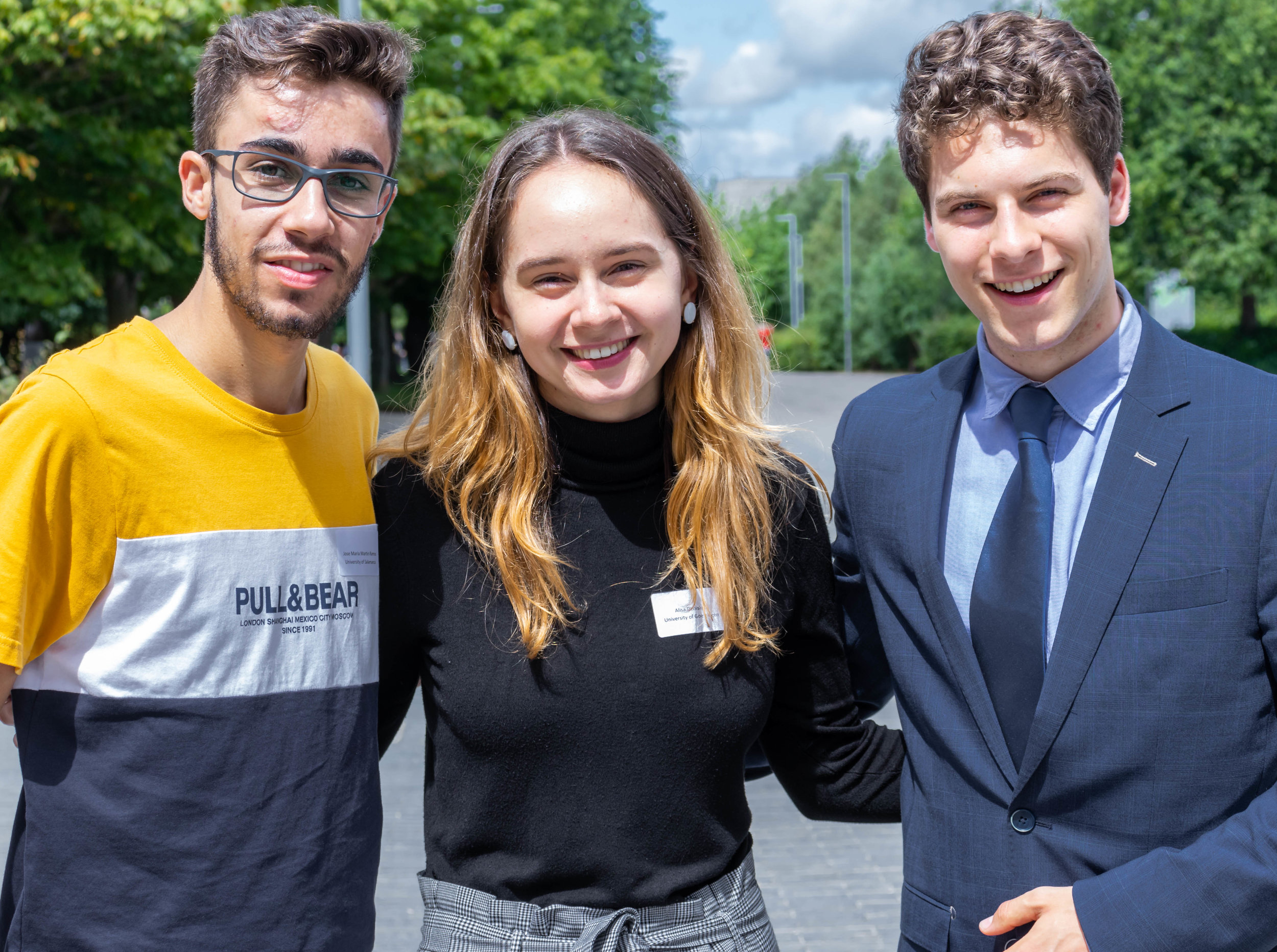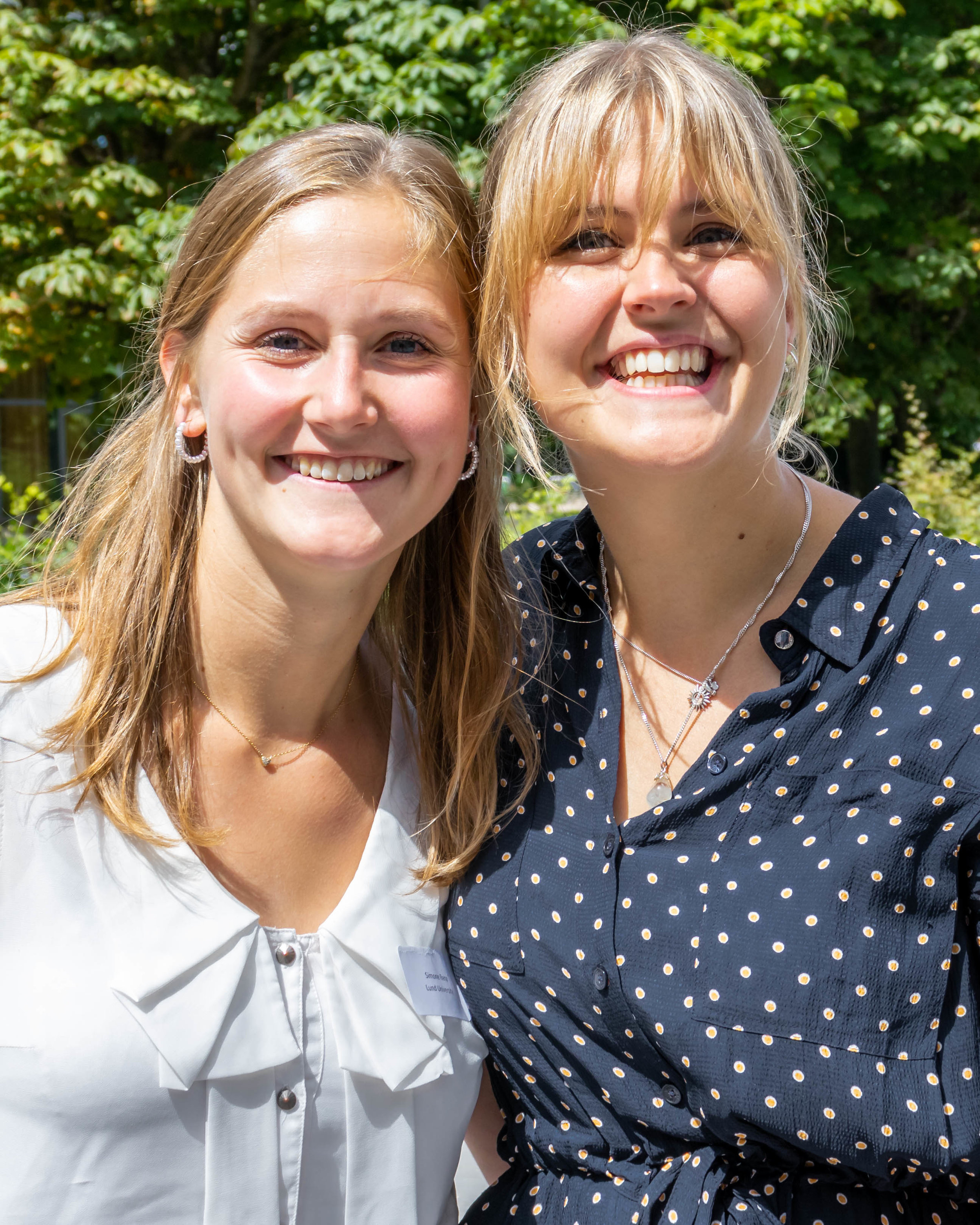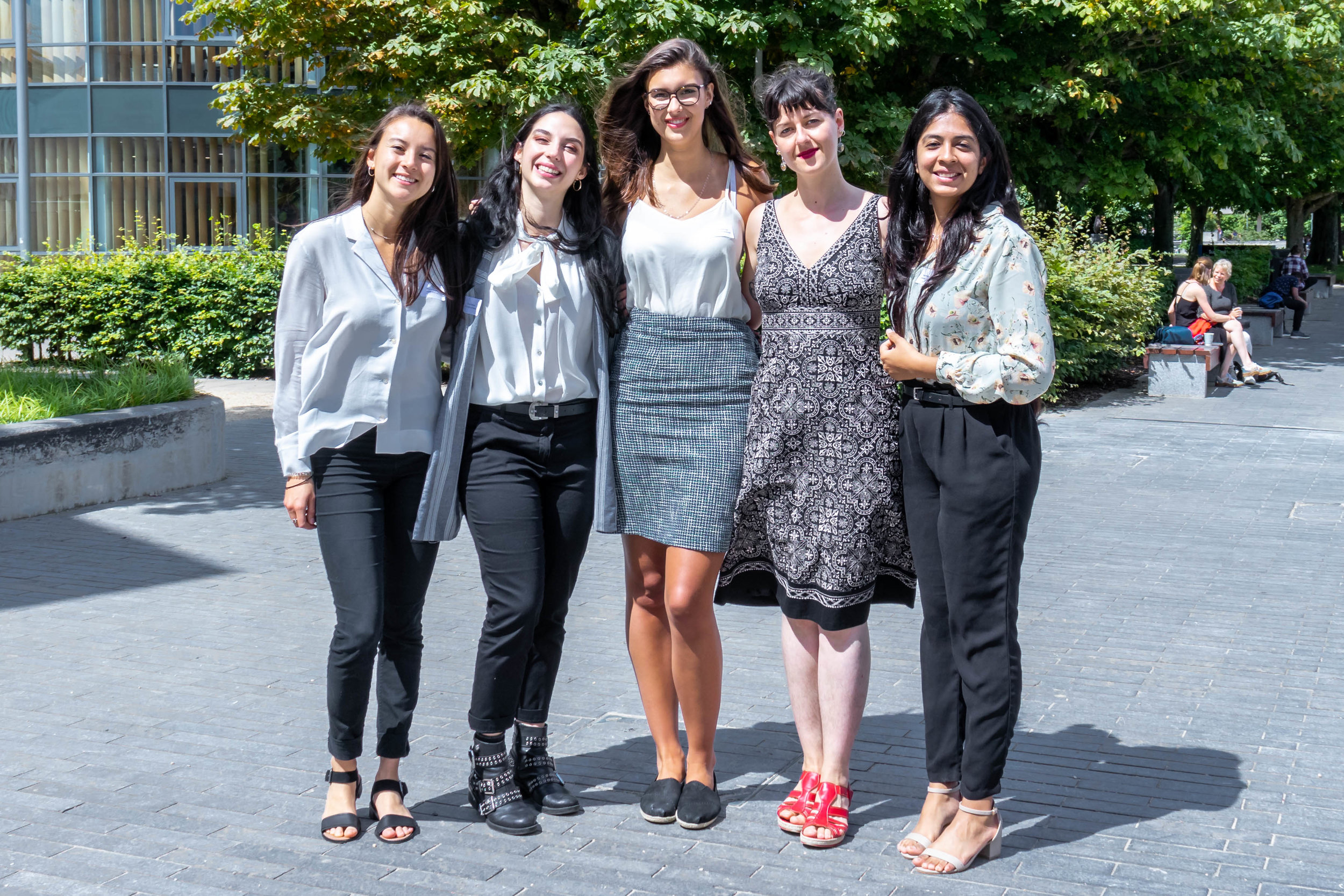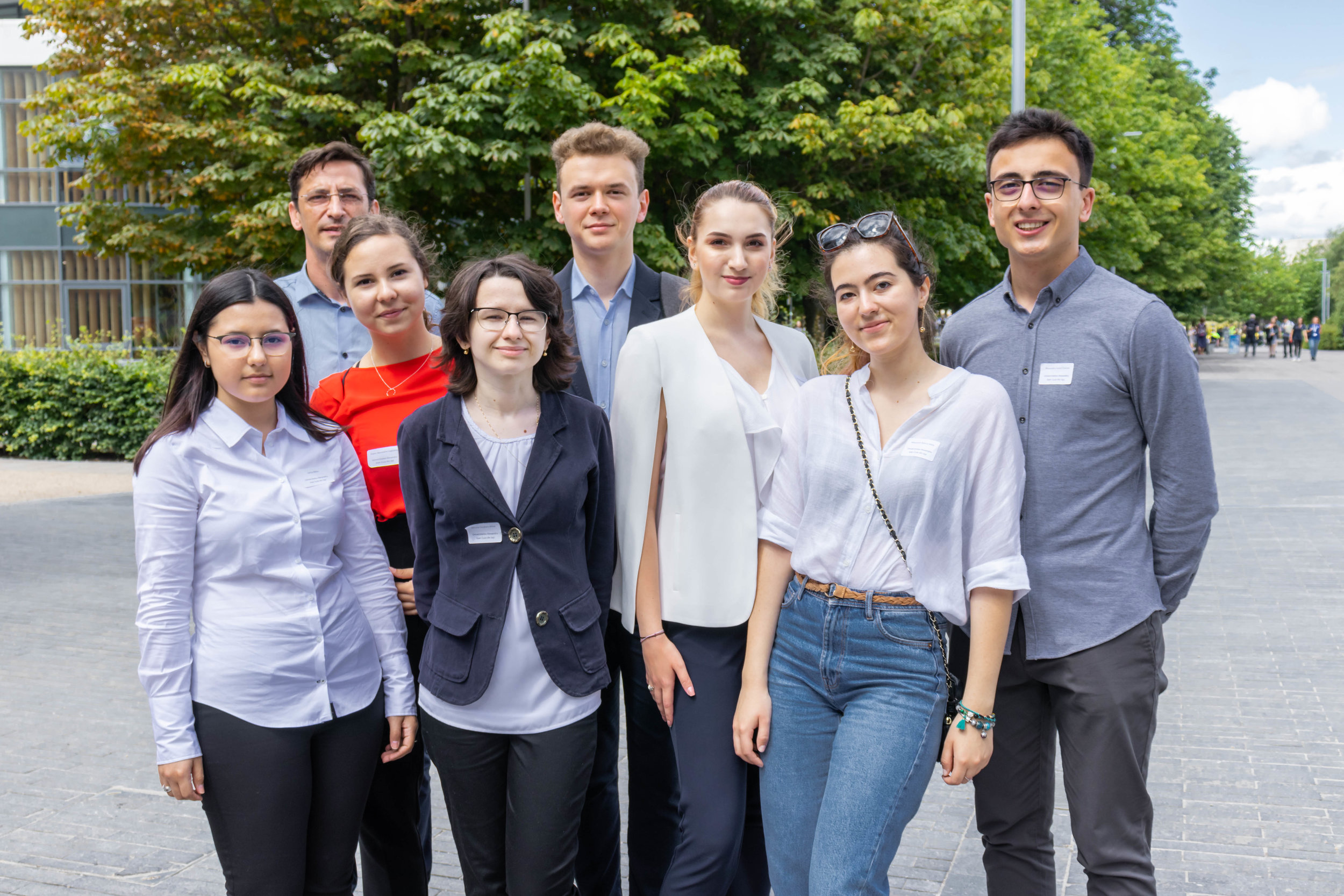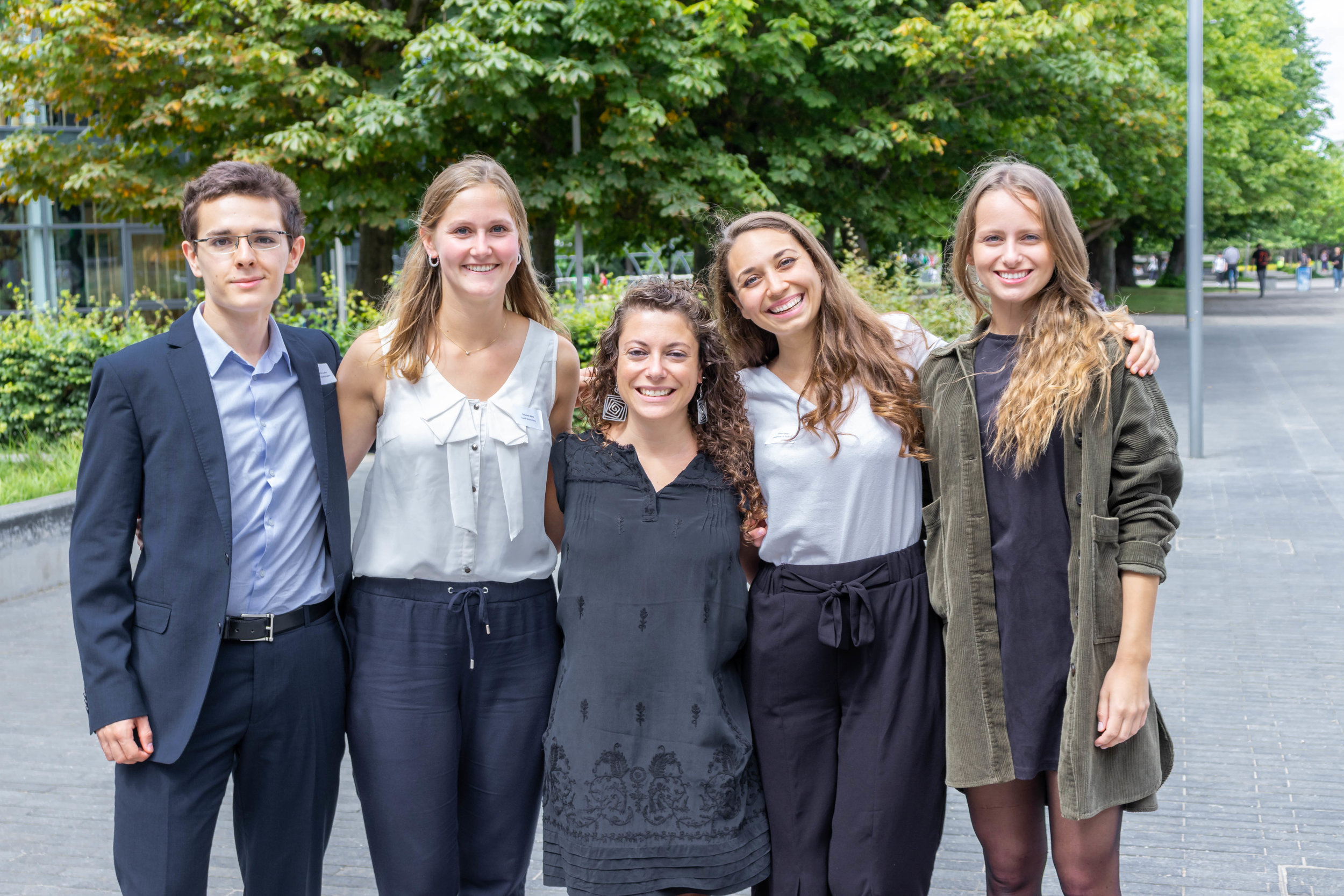NICE Summer School
The NICE Summer School is designed to build on the conceptual knowledge of Intercultural Competence and Entrepreneurship that students acquire during the Online Modules. The Summer School incorporates interactive sessions with lecturers and entrepreneurs, working in student groups, and an extensive cultural and social programme to foster a sense of community.
NICE Summer School 2024
The 2024 NICE Summer School took place on the campus of Jagiellonian University, in Kraków, Poland, from 30 June to 05 July 2024. The group was greeted with a welcome mixer upon arrival, which enabled the students to meet and mingle before the sessions began. Students participated in a week-long, in-person programme focused on developing solutions to international student integration challenges as expressed in the local Polish context. The students spent the week engaging in sessions on intercultural teamwork, creativity and innovation, and how to develop an idea via the ‘Transition Cycle’ framework. Students also took advantage of exploring the beautiful city of Kraków and its local culture. By the end of the week, the student teams had created solutions to the challenge that they then presented to their peers and representatives of the university at a showcase event on the final day.
What was it like participating in the 2024 NICE Summer School?
Three attendees offered their thoughts on the programme…
“If you are curious to see the world outside your window, you have to join this program. I experienced visiting other universities from different countries through this program. You will meet various new friends bringing their culture and colorful life stories to share with you.”
“Being part of the NICE summer school was a life-changing experience for me. Firstly, because it was my first time in the city of Krakow, I got to explore and do a lot of sightseeing. Secondly, the program was structured really well, and the topic covered was informative. I also enjoyed working with students from diverse backgrounds and institutions.”
“NICE summer school is for all the students who miss the friendships that are being made during camp in primary school! It is an environment where you can easily meet different cultures and learn to work and learn in an intercultural space. Also great if you are thinking about going abroad..”
NICE Summer School 2023
The 2023 NICE Summer School was held in Padua, Italy, from July 2-7. The group was greeted with a welcome aperitivo upon arrival, which enabled the students to meet and mingle before the sessions began. During the programme, the students were divided into groups to tackle the challenge of Student Engagement in Sustainability, which had been set by the University of Padua. The students spent the week engaging in sessions on persuasive pitching, systems thinking, and intercultural communication, and they participated in a treasure hunt throughout Padua, to explore the city and local culture, whilst bonding with their teams. By the end of the week, the teams had created solutions to the challenge that they then presented to their peers and representatives of the university at a showcase event on the final day.
What was it like participating in the 2023 NICE Summer School?
One attendee offered their thoughts on the programme…
“The NICE summer school provides a distinctive platform where academic knowledge can be applied to tackle real-world challenges. Collaborating with team members from diverse cultural backgrounds and universities has been an invaluable experience, allowing us to exchange ideas, perspectives, and best practices, thereby enriching our learning journey.
Our main task during the summer school was to create a sustainable project that addresses the issue of UNIPD student involvement in sustainability. Rather than solely studying theories and concepts, we were actively encouraged to engage with the topic by conducting research, collecting data, and developing innovative solutions to tackle this challenge.
It has been truly enriching and rewarding. The exposure and opportunities it has provided are exhilarating and unparalleled. I highly encourage students to participate in this program as it offers a one-of-a-kind opportunity to connect with a diverse group of like-minded individuals.”
NICE Summer School 2023 students
NICE Virtual Summer School 2021
The 2021 NICE Summer School was held virtually from July 12-16, 2021 and it included 16 workshops, a virtual café, 2 mobilization activities and artistic spaces, 3 practice pitching sessions, a writing retreat, and more!
Throughout the week, students attended workshops led by subject experts on intercultural communication, entrepreneurship, networking, and many other topics. They also had the opportunity to sign-up for an individualised business coaching session with VentureLab experts!
All participating students also had to work in international virtual teams to find innovative solutions for a Global Challenge that they pitched on the final days of the Summer School. During the Pitch Event, students had the opportunity to receive feedback and suggestions on their business ideas from experts!
After hearing out so many great Pitches, judges voted Team 20 “U-Cycle” as the Winning Team of the 2021 NICE Pitch event. Congratulations to all the teams that participated!
And special congratulations to Team 20, with their “U-Cycle” Project to tackle the Global Challenge of “Climate Action, Environment, and Resources”. Take a look at the winning team's video:
NICE Summer Virtual Student Conference 2020
The second annual NICE Summer School was due to be held in Salamanca in July 2020, however this was made impossible due to the COVID-19 pandemic and subsequent restriction on international travel. In response to this, the NICE Consortium decided to transition to a virtual learning experience for summer 2020.
The NICE Summer Virtual Student Conference was hosted by the University of Salamanca and held from July 13 – 16, 2020. Students attended a range of interactive workshops that reinforced and deepened their knowledge of intercultural competence and entrepreneurship, including topics on resilience and bravery, virtual teamwork, and pitching. They were also able to book drop-in sessions with business experts to receive feedback on the solutions to their Global Challenge they had developed throughout the online modules. Finally, team pitches provided students the opportunity to present their ideas to a panel of judges, as well as hear from other teams on the programme.
WHAT WAS IT LIKE PARTICIPATING IN THE NICE VIRTUAL STUDENT CONFERENCE?
FIND OUT WHAT MARCIN HAD TO SAY ABOUT HIS EXPERIENCES…
Marcin, a student from the University of Edinburgh, was part of the team Food Futurists!, who won 3rd place in the team pitches competition:
“Apart from taking part in interactive workshops and getting hands-on experience, the NICE Summer Virtual Student Conference was also a great opportunity to identify what entrepreneurial trends prevail among other students' ideas. Pitch presentations, during which all participating teams could showcase their innovative solutions to the chosen global challenge, showed that many of us believe that utilising digital technology may be the key to solving some of the biggest problems the world is facing today. From societal health and wellbeing to climate action and environmental protection, solving all global challenges may require taking a new, digital approach.
The challenge me and my team chose as a part of our NICE experience - The Future of Food and its Origins - is not an exception. To reduce food waste, we proposed the development of an educational programme aiming at encouraging more responsible shopping habits. However, throughout the whole project, our idea evolved significantly to eventually become a food sharing app. The idea is to connect people with a surplus of food with people in need of it on a similar basis modern dating apps are operating. This way, we would not only be able to reduce the amount of waste and tackle hunger but also create digital communities and directly engage our users with the cause.
At the very end of the conference, during the talk delivered by Spanish Tech investor and Entrepreneur, Bernardo Hernández, we could hear how the digital transformation is being implemented and why it is an indispensable part of the future business landscape. Looking back on it now, I can tell that under the current situation the world has found itself in, it is more important than ever to talk about how to utilise digital resources we have to step into a more sustainable future.”
Dublin NICE Summer School 2019
The 2019 NICE Summer School was held in Dublin from July 21 - 27 and the students who attended had a fantastic time! They attended morning lectures and sessions on cross-cultural communication, testing viable products, leadership across cultures and decision-making skills, among many other topics. All attendees were also put into groups and they spent their afternoons throughout the week working on solutions for a Global Challenge that they pitched on the final day of the Summer School.
All the students had the opportunity to take an introductory class in Irish language and culture and participate in an Instagram scavenger hunt across Dublin! Our final day finished off with dinner at a local restaurant and a night of Irish music. If you’d like to see a simplified outline of the NICE Dublin Summer School Schedule, please click on the button below.
What was it like participating in the NICE Dublin Summer School?
Find out what Gabriela had to say about her experiences…
Team Ampai, Ampai
Gabriela, a student from the University of Edinburgh, was part of the team Ampai, Ampai, who won the Global Challenge Pitch Presentation:
Our product is a bit of an odd one. We ended up presenting jellyfish crisps. Or, Jellycrisps as we called them. Our process to get to our final solution realistically spanned about three out of the five days, with the final two days being used to complete our presentation.
The idea came about during a team brainstorming session on day one. It’s safe to say that I originally proposed “eating jellyfish” as a bit of a joke. The idea came from an article by National Geographic I had read a few years back which showed the threat jellyfish posed to the marine ecosystem. We didn’t really take the idea seriously until the next day when we were asked to present something we had come up with. From then on we spent time researching as a team the sorts of food jellyfish could be made into. We found an article that showed scientists in Denmark successfully managed to turn jellyfish into crisps, with a recipe right there that they wanted someone to take and commercialise on, which we did in a way. And that’s how we settled on Jellycrisps.
A lot of teams switched their ideas half-way through the project, and honestly if we managed to think of a less ridiculous one I'm sure we would have too, but even if we weren’t the winning team, I’m glad we never did. Right before our first pitch we were all nervous, and my teammate Chiara turned to us and said “Guys, let’s be honest. This idea isn’t going to win, so let’s just have fun with it”, and we did, and that was probably the best advice she could have given us, we all calmed down, had fun with it, and won.
“One of the main things we took from the project is that it does pay to be different. I guess that’s the aim of entrepreneurs: to be innovative and different and I guess our global solution reflected that”
You can see some of the photos from our week in Dublin below
